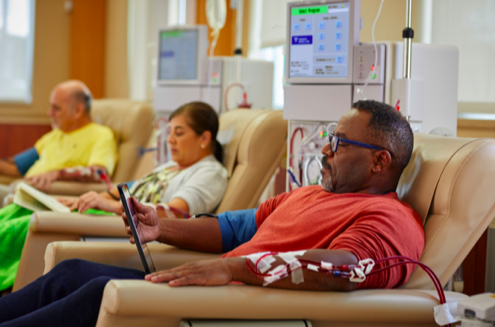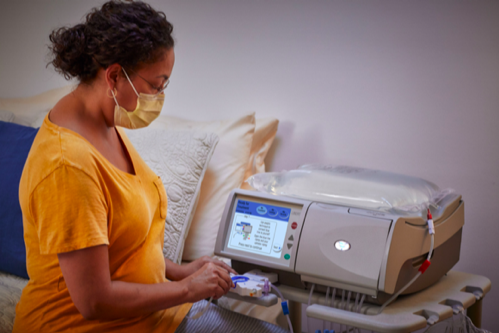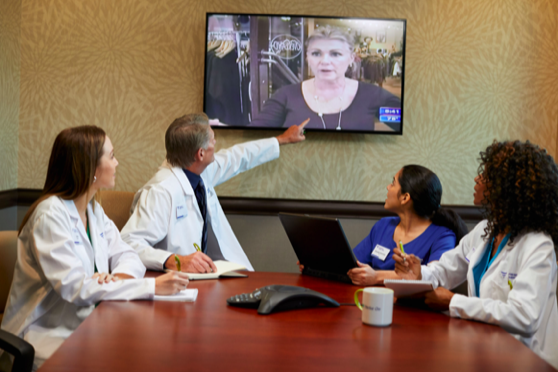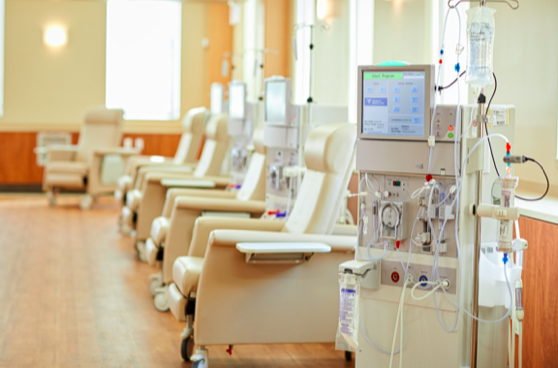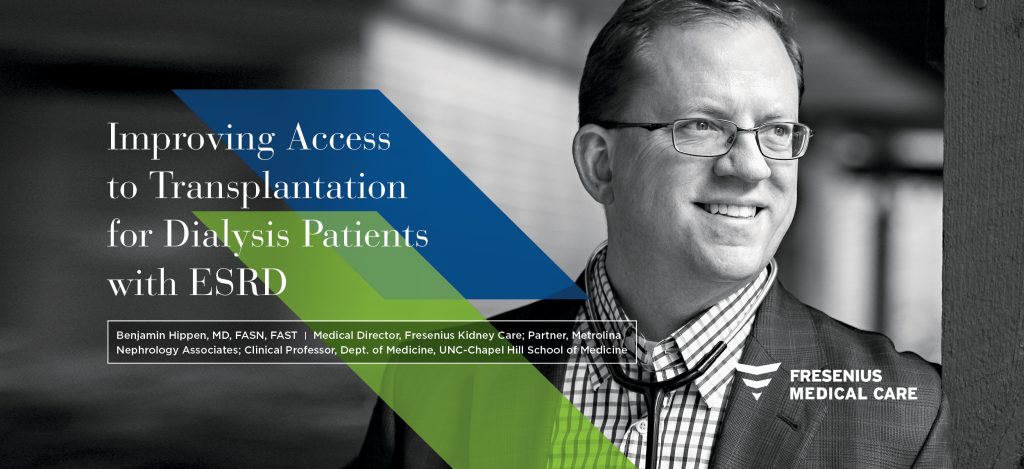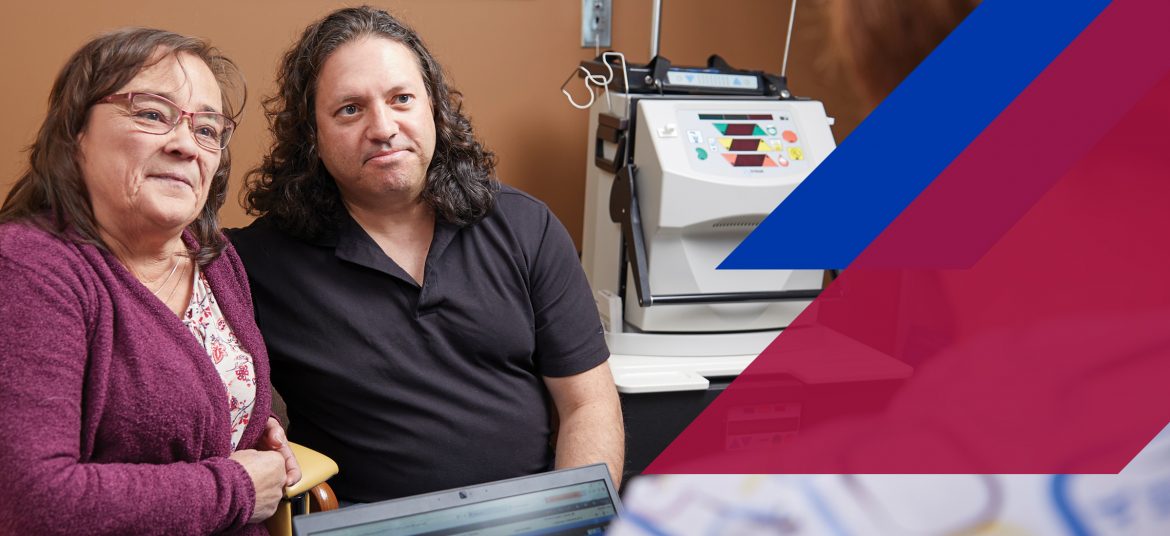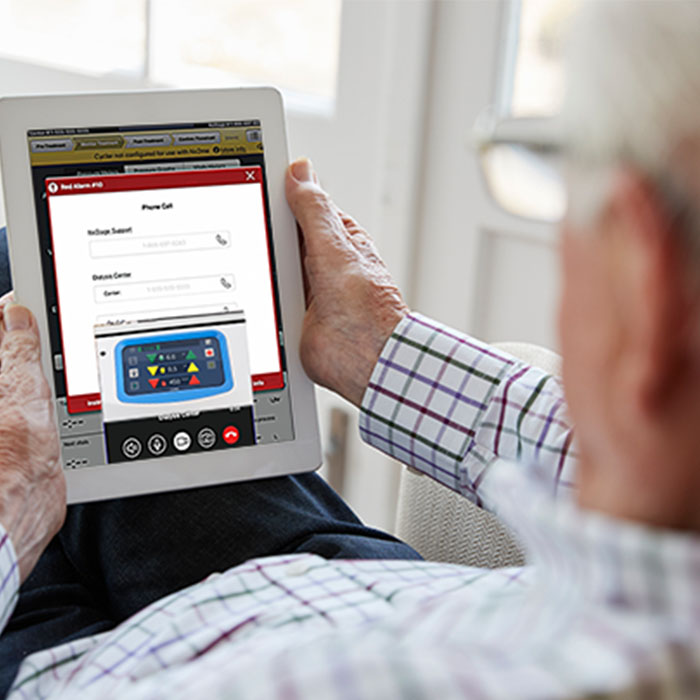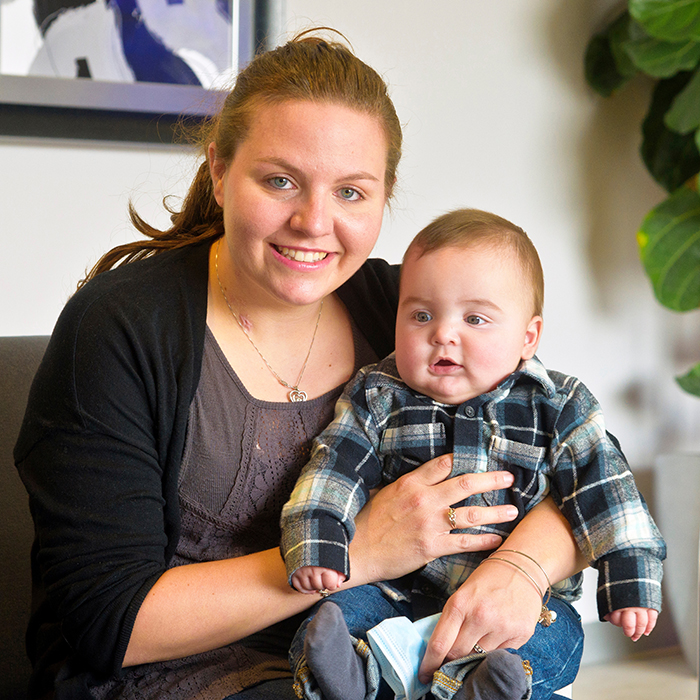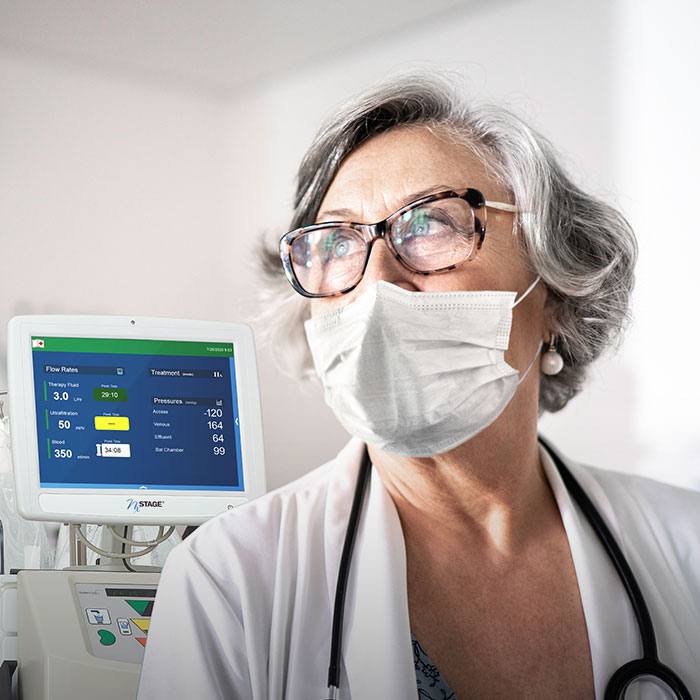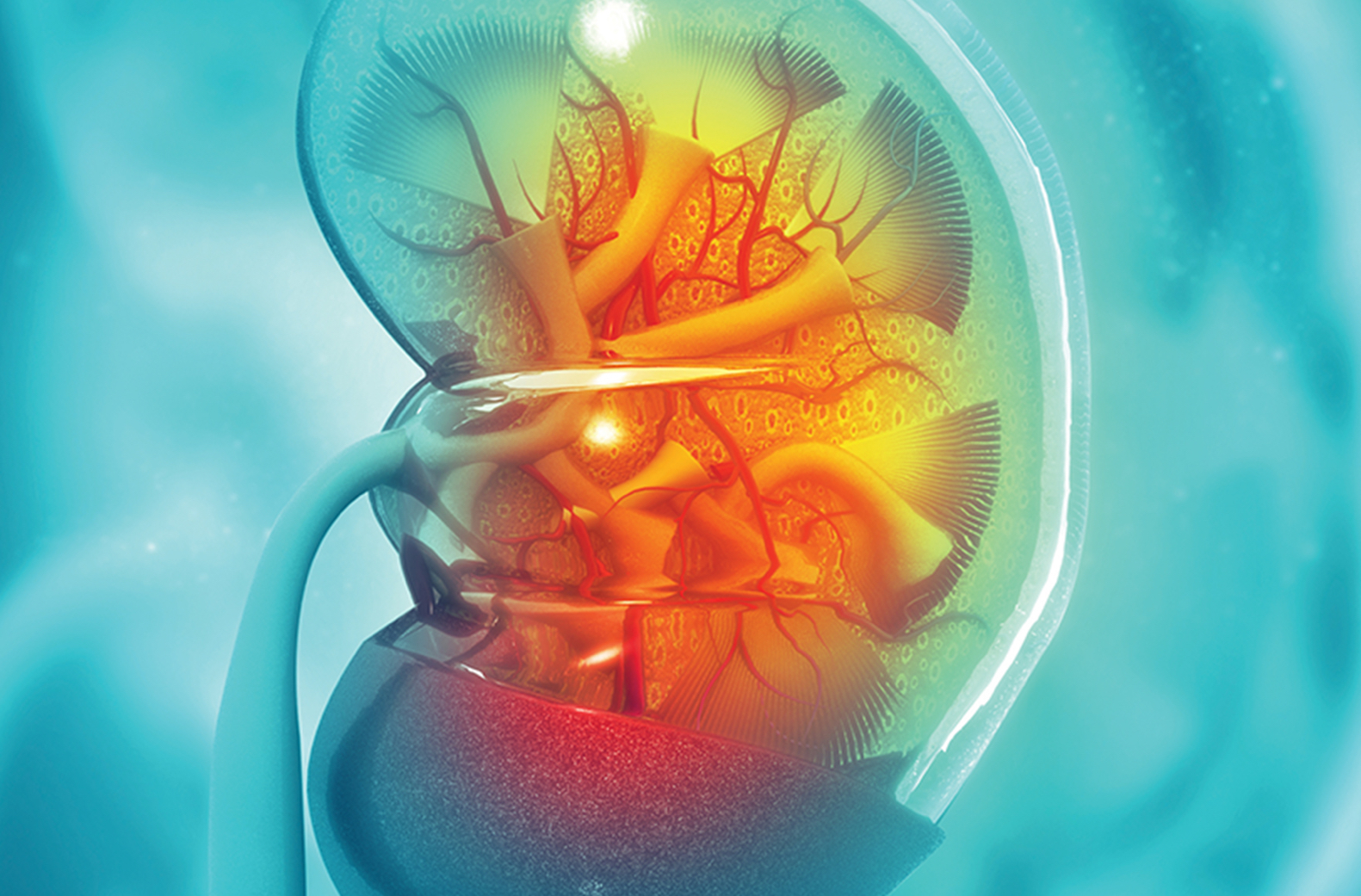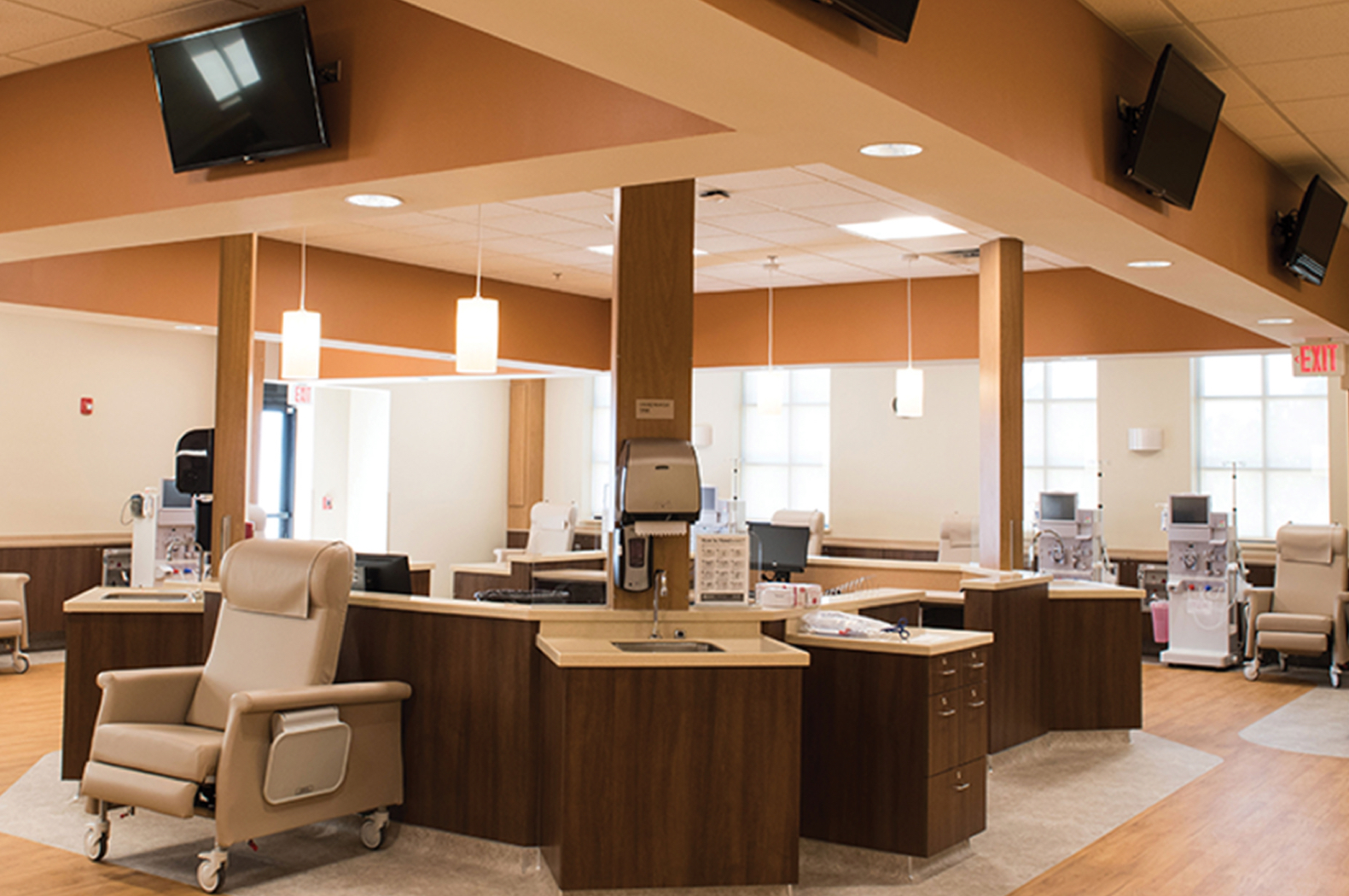Allan Collins, MD, FACP, and Eric Weinhandl, PhD, outline how more frequent home hemodialysis can ultimately can improve cardiac structure.
Read MoreFilter by:
-
-
Learn about our global commitment to improving the lives of kidney disease patients through interconnected intelligence.
Read More -
14 Apr 2023 Salt In and Salt Out—Where Is the Balance?
Increased knowledge of how salt is stored in the skin is changing the view on how to measure and treat salt in kidney patients. Peter Kotanko shares the latest.
Read More -
Read about advancing interoperability to reduce provider burden and improve care for chronic kidney disease patients.
Read More -
14 Apr 2023 Fluid Management Highlighting BCM and Crit-Line
Improving fluid management is key to reducing patient deaths from cardiovascular causes. Learn about two new innovations from FMC in fluid management.
Read More -
14 Apr 2023 What Is So Exciting About HIF?
Learn about advacements using hypoxia-inducible factors (HIFs) for managing anemia in patients with chronic kidney disease (CKD). Read more.
Read More -
14 Apr 2023 Seeing Through Sound: Acoustic Fingerprinting
Read how FMCNA data scientists converted sound into non-discernible numerical data that can potentially be used to classify clinic-level quality outcomes.
Read More -
14 Apr 2023 Food to Prevent and Treat Chronic Kidney Disease
Learn about opportunities presented from integrating medically tailored meals into kidney disease treatment programs.
Read More -
Experts share how improving vascular access and reducing catheter contact time can improve patient's lives and save the healthcare system millions of dollars.
Read More -
The NIH provided 10 times more funding for cancer than kidney disease even though more people are diagnosed with kidney disease. Kurt Mussina explains why.
Read More -
FMCNA's Emergency Preparedness Checklist will help administrators develop a plan to address the unique demands of kidney treatment. Download for free!
Read More -
15 Jun 2023 Unwavering Commitment to Patient Safety: A Q&A with Kathleen Belmonte on Achieving 5-Diamond Safety Status
Fresenius Kidney Care Achieves 5-Diamond Status in its Dialysis Centers.
Read More -
The inaugural interview for the new Global Medical Office Dialogues video series is with William Kaelin Jr., MD, Sydney Farber Professor at Harvard Medical School, Dana Farber, and Brigham and Women's Hospital in the United States, and winner of the 2019 Nobel Prize for his research with two others regarding how cells sense and adapt to oxygen availability with implications for anemia and chronic kidney disease care.
Read More -
30 Jun 2023 Episode 2 | Telehealth in the COVID-19 Era
Dr. Ahmad Sharif, Senior Vice President and Chief Medical Information Officer at Fresenius Medical Care North America, discusses the important use of telehealth to safely treat patients during the COVID-19 era and what the future holds for virtual patient care when the pandemic ends.
Read More -
Dr. Dugan Maddux, Vice President of Kidney Disease Initiatives for Fresenius Medical Care North America, joins Field Notes to discuss the consequences of food insecurity for people living with serious chronic conditions and the importance of medically tailored meals in treating kidney disease.
Read More -
30 Jun 2023 Episode 4 | The Future of AI & Kidney Disease
Len Usvyat, PhD, Vice President of Applied Advanced Analytics, joins Field Notes to explain how artificial intelligence is being used to provide better treatment for people with kidney disease by predicting potential outcomes and future health care needs.
Read More -
As the COVID-19 pandemic continues, its impacts on the body continue to be understood. Dr. Ted Toffelmire, the Senior Director of Medical Affairs in Canada for Fresenius Medical Care North America, joins Field Notes to discuss a potential link between the devastating virus and acute kidney injury.
Read More -
30 Jun 2023 Episode 6 | COVID-19 and Acute Kidney Injury
Listen to Field Notes, a podcast by FMCNA. Dr. Peter Kotanko discusses a new mathematical model for pool testing COVID-19.
Read More -
30 Jun 2023 Episode 7 | Maintaining Care During Major Events
Listen to Field Notes, a podcast by FMCNA. Bob Loeper joins to discuss what it takes to ensure dialysis care for patients after a major diaster.
Read More -
Listen to Field Notes, a podcast by FMCNA. This episode welcomes Dr. Laura Niklason, co-founder of Humacyte, as she talks about dialysis access improvements.
Read More -
Listen to Field Notes, a podcast by FMCNA. Dr. Jeffrey Hymes joins to discuss FMCNA's COVID-19 pandemic response to keeping patients safe.
Read More -
Gina Sharkey and Tana Waack join Field Notes to provide a behind-the-scenes look at the front-lines inside some of the hospitals hit hardest by COVID-19.
Read More -
Chance Mysayphonh, PharmD, clinical pharmacist for Fresenius Medical Care North America, joins Field Notes to discuss how new monoclonal antibody therapies will be used in Fresenius Kidney Care centers to help fight COVID-19.
Read More -
Dr. Frank Maddux, Global Chief Medical Officer, joins Field Notes to explain how a new initiative to build the world"™s largest renal-focused genomic registry will impact the future of kidney care for years to come.
Read More -
Dr. Michael Anger, Chief Medical Officer of the Renal Therapies Group, joins Field Notes to discuss the methods used to prevent bone damage, preventing the need for additional and expensive therapies for patients.
Read More -
Originally developed to treat diabetes, SGLT2 inhibitors are potentially groundbreaking in slowing the progression of chronic kidney disease (CKD).
Read More -
30 Jun 2023 Episode 20 | What’s Next for NxStage
Joe Turk, former president of NxStage Medical and current president of home and critical care therapies for FMCNA, joins Field Notes to discuss how the merger is helping evolve and grow technology for home dialysis and critical care.
Read More -
Laura Kemper and Nate Elias discuss how Fresenius Medical Care procured and distributed COVID vaccines to ESRD patients in dialysis centers nationwide.
Read More -
30 Jun 2023 Episode 23 | ECMO Novalung Machine
Dr. David Thompson discusses heart and lung support with a new, FDA approved, ECMO machine called Novalung from FMCNA.
Read More -
30 Jun 2023 Episode 25 | Managing Albumin Levels
Dr. Kam Kalantar, an expert in kidney diseases and epidemiology, joins Field Notes to help us better understand the importance of managing albumin levels.
Read More -
30 Jun 2023 Episode 26 | Spectra Opens Mississippi Lab
Ines Dahne-Steuber, president of Spectra laboratories and Dr. Alex Ryder, Spectra's medical director discuss the opening of its new Mississippi Lab.
Read More -
Dr. Jeffrey Hymes explains why COVID-19 boosters are necessary and safe, and why they are so effective to protecting our patients with Kidney Disease.
Read More -
30 Jun 2023 Episode 33 | Telehealth in a Post COVID-19 World
Dr. Shelly Nash joins Field Notes to answer questions on what telehealth could look like in a post COVID-19 world.
Read More -
Dr. Michael Anger and Jeffrey Carr discuss the significant impact of linking genomic and clinical data of both CKD and ESRD participants to improve outcomes.
Read More -
Dr. Murat Sor joins Field Notes to discuss how optimal starts can result in fewer complications, reduce costs, and improve outcomes for patients.
Read More -
FreseniusRx is expanding its services beyond just kidney care to include non-renal medications and will become a go-to pharmacy for our patients’ medications needs. Senior Director of Pharmacy Michelle Nguyen, PharmD explains how this will work and why it is so important to ensure successful medical management and adherence.
Read More -
30 Jun 2023 Episode 43 | The War in Ukraine and Dialysis
Dr. Stefano Stuard and Dr. Volodymyr Novakivskyy join this episode to talk about how they prepared patients in Ukraine prior to the Russian invasion in February of 2022 and all the measures they have taken since then to provide life-saving care and accommodations for patients.
Read More -
Dr. Charles Herzog and Dr. Christopher Chan join this episode of Field Notes to talk about the American Heart Association's recent statement explaining how home dialysis can improve a patient's cardiovascular health and how prescribing dialysis with heart health in mind can increase the chances for successful care plans for patients.
Read More -
Dr. Michael Kraus discusses artificial intelligence and machine learning with Dr. Len Usvyat and Dr. Luca Neri.
Read More -
Diversity expert and author, Lenora Billings-Harris, talks with Dr. Frank Maddux about racism and unintended bias in healthcare.
Read More -
-
Translating Science into medicine episode one with Dr. Peter Kotanko, Reserach Director of RRI (The Renal Research Institute).
Read More -
Analytics expert, Dr. Len Usvyat talks about his team's work in using advanced analytics to support clinical decision-making.
Read More -
In part three of our exploration into Translating Science into Medicine, we talk with Hanjie Zhang, biostatistician at RRI, the Renal Research Institute, and an expert in artificial intelligence and machine learning.
Read More -
We talk with Dr. Peter Kotanko, research director at RRI, the Renal Research Institute, about the effects of extreme climate events on vulnerable patient populations.
Read More -
In this episode of Dialogues, we continue our look at Translating Science Into Medicine by talking with Dr. Doris Fuertinger, Director of Biomathematical Modeling and Simulation at Fresenius Medical Care, and a pioneer in the concept of virtual clinical trials.
Read More -
Metabolomic signatures can be used to deliver more personal, precise care for patients living with kidney disease.
Read More -
Investigate the relationship between human health and climate change events that can increase the risk of kidney disease and respiratory illness.
Read More -
3 Jul 2023 Episode 11 | Food Is Medicine
Social determinants of health such as food insecurity, have a profound impact on people living with chronic kidney disease and other related conditions.
Read More -
Frenova Renal Research is building a Genomics Registry to analyze genetic sequencing data from chronic kidney disease patients worldwide. Listen now.
Read More -
Combining clinical and genetic data from patients, scientists can understand how to make a more precise diagnosis of kidney disease in individualized care.
Read More -
Cardiovascular disease is the number one cause of death for people with kidney disease. Learn why cardiac disease is such a problem in kidney failure patients
Read More -
Improving vascular access affects outcomes for people on hemodialysis. Dr. Latif discusses improving patient outcomes by addressing opportunities in vascular access.
Read More -
Real-world evidence can complement existing research in gaining new and valuable insights that improve kidney disease care with Dr. Ficociello and Dr. Winter.
Read More -
Fresenius Medical Care developed its own ultrafiltration controller for fluid management. Dr. Lemuel Rivera Fuentes discusses this breakthrough innovation.
Read More -
Race is currently one factor used in GFR equations. Nephrologist Nwamaka Eneanya wonders if its inclusion may contribute to systemic racism in medicine.
Read More -
-
Dr. Nilufar Mohebbi, discusses treating metabolic acidosis in patients, which can delay the progression of chronic kidney disease.
Read More -
Nephrologist Kolitha Basnayake discusses how quality improvement programs must address barriers to shared hemodialysis care for the individual.
Read More -
Dr. Michael Anger joins this episode to discuss how SGLT-2 inhibitors can be used earlier with kidney disease patients and improve overall patient health.
Read More -
Krister Cromm, FMCNA's Director of Patient Experience, discusses improving patient health by including patient reported outcomes in clinical trials.
Read More -
Dr. Kirsten Johansen discusses the racial and ethnic disparities in CKD, ESRD, and the access to treatment of these conditions according to the USRDS.
Read More -
Dr. Maria Mercedes Resk, Medical Director for Fresenius Medical Care CARICAM, discusses cardioprotection and personalizing kidney replacement therapy.
Read More -
Dr. Miriam Huntley talks about improving infectious disease diagnosis and treatment, genomic sequencing, and machine learning to solve antibiotic resistance.
Read More -
Dr. Len Usvyat, the Global Medical Office’s head of Clinical Advanced Analytics, talks about how real-world data generated by devices is used to improve the care of people living with kidney disease.
Read More -
Dr. Laura Niklason, Founder and CEO of Humacyte, discusses this promising technology and its recent deployment as humanitarian aid for repairing vascular trauma in Ukraine.
Read More -
Learn how documenting patient care, allows participating providers to improve patient outcomes through care coordination.
Read More -
17 Jul 2023 The COVID-19 Pandemic
Get insight into how the COVID-19 pandemic continues to evolve, our understanding of disease transmission, long-term complications, and immune response.
Read More -
With the high demand for testing during the covid-19 pandemic, simulation pool testing was used to identify patients with the coronavirus disease 2019.
Read More -
17 Jul 2023 Activating a Global Pandemic Master Plan | FMCNA
Learn about FMCNA's global master plan to address the COVID-19 pandemic at the global, regional, and local levels.
Read More -
17 Jul 2023 Fresenius Kidney Care in Asia Pacific
Learn how our Fresenius Kidney Care Asia Pacific team takes a comprehensive approach to serving kidney disease patients in nearly 50 countries.
Read More -
Learn how advanced analytics are used to collaborate and prioritize tools that can be meaningfully integrated into a clinician’s workflow.
Read More -
17 Jul 2023 Genomics Medicine and Kidney Care | FMCNA
Discover a new renal-focused genomic registry that will encourage more research in the underlying mechanisms of kidney disease and personalized medicine.
Read More -
The NephroCare network includes more than 790 clinics and is coordinated by 28 dedicated physicians across 29 countries that make up the EMEA region.
Read More -
As Fresenius Medical Care develops IT platforms, one of the biggest challenges is to balance global solutions with the need to accommodate diverse environments.
Read More -
Product lifecycle management (PLM) for medical products is more complex. Learn about Fresenius Medical Care's PLM across the world.
Read More -
17 Jul 2023 Clinical Evidence Generation — Why and How
Learn more about the Clinical Evidence Generation (CEG) research initiative and how it's focused on researching a product's real-world clinical value.
Read More -
17 Jul 2023 Increasing Access to Transplantation | FMCNA
Learn how Fresenius Medical Care is reducing hurdles to transplantation and reducing kidney transplant waitlist time.
Read More -
Learn how researchers at the Renal Research Institute created a mobile application that helps to identify and classify high-risk aneurysms.
Read More -
FMCNA aims to improve cardioprotection during dialysis through more personalized treatment. Read more.
Read More -
Tune into this episode of Field Notes to listen to Dr. Michael Kraus and Michelle Carver, Senior Vice President of Nursing and Clinical Services at Fresenius Kidney Care, discuss what we can do to improve CAPD Culture in the United States.
Read More -
19 Jul 2023 Episode 38 | CONVINCE Study Results
-
19 Jul 2023 Episode 37 | APOL1 research and its impact on the African American population of renal patients
Dr. Reshma Kewalramani, CEO of Vertex Pharmaceuticals discusses the company’s research into the underlying cause of APOL1-mediated kidney disease.
Read More -
Learn how we took the lead in developing strategies to protect patients, families, caregivers, and clinical staff from COVID-19.
Read More -
19 Jul 2023 COVID-19 Associated Acute Kidney Injury | FMCNA
During the COVID-19 pandemic, we deployed our Disaster Relief Team and created a pool of dialysis equipment to meet the increased demand of acute kidney injury patients.
Read More -
As several different COVID-19 vaccines are authorized for emergency use and/or approved around the world, the race to contain the pandemic has been given a new weapon.
Read More -
19 Jul 2023 Covid-19 Emerging Variants | FMCNA
While current COVID-19 vaccines are very effective, manufacturers are developing strategies to ensure that new vaccines can keep pace with the rapid rate of mutation.
Read More -
While global COVID-19 data confirms that dialysis patients experienced a high rate of hospitalization and death, there has been insufficient research into many issues surrounding individuals with end stage kidney disease.
Read More -
The Centers for Medicare and Medicaid Services (CMS) established the end stage renal disease Prospective Payment System (PPS) to facilitate beneficiary access to renal dialysis equipment.
Read More -
Our connected health platforms empower patients and clinical staff through a digital ecosystem that connects patients with healthcare professionals, medical devices, and customer service.
Read More -
We are driving innovation and transformation in kidney care with research into regenerative medicine, organ transplant, and organ recovery.
Read More -
19 Jul 2023 Critical Care at Fresenius Medical Care
Our Global Medical Office has created an interdisciplinary critical care team to help develop new critical care delivery improvements.
Read More -
Our Global Medical Office has started a program to understand regional factors affecting performance in improving care for people with end stage kidney disease.
Read More -
We're taking a multifaceted approach to advancing transplantation including technologies to expand the pool of kidneys available for transplant.
Read More -
Patients who are active partners in their care report better physiological and psychological outcomes compared to those in more traditional dialysis care settings.
Read More -
Starting dialysis in a planned way with a permanent access results in better early dialysis outcomes, improved quality of life, and lower healthcare costs.
Read More -
The digital health era now offers tools for transforming clinical research through improved efficiencies of highly complex trials.
Read More -
Precision medicine requires properly recognizing the right patient, having the right drugs, and knowing the right time to apply them.
Read More -
By creating genomic and phenotype data sets for more than 100,000 patients, researchers can begin to unlock the complexities of CKD.
Read More -
The risk of cardiovascular disease increases with the progression of CKD, so cardiovascular health is an essential component of CKD management.
Read More -
We developed an ultrafiltration (UF) control algorithm to attain favorable relative blood volume (RBV) ranges by comparing the RBV profile to the target curve and making UF adjustments.
Read More -
The ability to take healthcare innovations and learnings from one locale to another has helped us make an impact in communities worldwide.
Read More -
Cardiac disease prevention and management is one of the most important clinical targets in patients receiving maintenance dialysis.
Read More -
15 Aug 2023 Patient-Centered Vascular Access Care | FMCNA
We are devoted to providing precise and personalized care while improving vascular access for people on hemodialysis.
Read More -
In this 48th episode of Field Notes, Dr. Michael Kraus discusses artificial intelligence and machine learning with Dr. Luca Neri and Caitlin Monaghan. This is a two part-series, with the first part covering artificial intelligence more generally and this second part diving deeper into artificial intelligence in medicine and nephrology.
Read More -
Hemodialysis patients who skipped the influenza vaccine were significantly more likely to be hospitalized than those who were vaccinated, suggests a three-year study of more than 150,000 kidney dialysis patients being presented today in Chicago at 2016 Kidney Week, the annual meeting of the American Society of Nephrology (ASN).
Read More -
4 Sep 2023 Bringing a Wider Lens to Our Medical View
Dragonflies can see everything, all the time, all around. They have so many lenses on their head that nothing gets by them. When they see a predator approach, they can react in a fraction of a second. I wish I had the eyes of a dragonfly.
Read More -
Dr. Frank Maddux discusses how HUMACYL® could potentially improve vascular access options for hemodialysis patients.
Read More -
A discussion with Jeffrey L. Hymes, MD, Chief Medical Officer for Fresenius Kidney Care, on the ways connected health technologies enhance patient care.
Read More -
Read about 5 end stage renal disease innovations helping transform the lives of kidney patients.
Read More -
Researchers discover 35 kidney genes that predispose people to chronic kidney disease. Read more.
Read More -
4 Sep 2023 Reducing Risks of Flu for People with ESRD
FMC researchers found that ESRD patients who skipped the flu shot have an increased chance of hopilization. Learn more.
Read More -
4 Sep 2023 Sex Differences in Chronic Kidney Disease
Reasearch shows chronic kidney disease impacts men and women differently. Learn why more women are diagnonsed with CKD and more, here.
Read More -
Fresenius Medical Care shares how missing a dialysis treatment was not an option for patients at one Fresenius Kidney Care clinic in Louisberg, North Carolina.
Read More -
4 Sep 2023 Recruiting, Retaining and Rewarding Nephrology Nurses: A Q&A with Tammie Kear, Ph.D., RN, CNN
An interview with Tammie Kear, Ph.D., R.N., CNN, Fresenius Medical Care nurse and President-elect of the American Nephrology Nurses Association.
Read More -
Discover how Fresenius Kidney Care developed a program using a new hep C treatment, Zepatier, to help cure dialysis patients of hepatitis C.
Read More -
Fresenius speaks with Kurt Mussina, GM of Frenova Renal Research on how providers can overcome the barriers to enrolling renal patients in clinical trials.
Read More -
-
An interview with Len Usvyat about the increasing importance of artificial intelligence to deliver new insights that improve outcomes for our patients.
Read More -
4 Sep 2023 New Discoveries in Treatment and Recovery from Acute Kidney Injury: A Q&A with Dr. Frank Maddux
A preliminary analysis of new data from more than 9,000 patients with acute kidney injury receiving outpatient dialysis provides important insights.
Read More -
A newly released annual study from the American Heart Association shows the prevalence of heart disease is higher due to new guidelines for high blood pressure.
Read More -
Donnie King, a renal patient who attends dialysis three times a week at Fresenius Kidney Care in Mississippi, discusses the benefits he receives from participating in clinical trials with Frenova Renal Research. Donnie says his experience has been rewarding and that "It's a great way to give back and make a difference."
Read More -
Find out why home dialysis is ready to take off in the U.S. and become the modality of choice for 25 percent of patients with kidney failure by 2022
Read More -
Mark Costanzo, President of Fresenius Medical Care North America’s Renal Therapies Group, discusses how the company’s expertise in treating kidney failure is supporting the development of new treatments for acute lung failure as well.
Read More -
In an unexpected discovery, researchers recently determined that a medication commonly used to treat Type 2 diabetes also slows the progression of chronic kidney disease (CKD), significantly reducing the risk of developing kidney failure or end stage kidney disease.
Read More -
Fresenius Medical Care North America celebrates Earth Day 2019 by sharing the ways the many parts of life-sustaining dialysis machines are reused and recycled.
Read More -
A study shows that exposure to other people’s tobacco exhalations can also increase a person’s risk of chronic kidney disease (CKD) and kidney failure.
Read More -
A discussion about phosphate binders with Dr. Robert Kossmann, Chief Medical Officer for Fresenius Medical Care North America (FMCNA), including new research being presented at the 2019 National Kidney Foundation (NKF) Spring Clinical Meetings in Boston.
Read More -
Researchers discovered a new compound that restores kidney function, unlocking opportunities to treat kidney disease progression.
Read More -
There is mounting evidence that COVID-19 not only damages the lungs, but also the kidneys resulting in emergency dialysis. Read more here.
Read More -
A new model by the Renal Research Institute suggests that pool testing for COVID-19 could offer some advantages. Read more.
Read More -
Learn more about the Ben J. Lipps Research Fellowship, a program that supports research around kidney disease treatments.
Read More -
On February 21, 2020, the U.S. Food and Drug Administration (FDA) cleared Novalung®, a heart and lung support system for the treatment of acute respiratory or cardiopulmonary failure in adults. Novalung is the first extracorporeal membrane oxygenation (ECMO) system to be cleared for more than six hours of use as extracorporeal life support.
Read More -
The BioSticker is a body sensor that helps monitor patients with kidney failure and those transitioning to dialysis treatment at home. Read more here.
Read More -
-
As a company, we strive to better the lives of our patients, employees, and the communities we serve through our commitment to the environment. As an industry leader, it is important to live our values and adopt sustainable solutions.
Read More -
A new predictive tool designed specifically to identify dialysis patients most at risk for hospitalization has been embraced by nurses who have come to see it as essential.
Read More -
4 Sep 2023 Partnering to Improve Access to Transplant: A Q&A with Dr. Matthew Cooper and Dr. Ben Hippen
On October 22, 2019, Donate Life America (DLA) and the Fresenius Medical Care Foundation (Foundation) announced a unique partnership, launching a groundbreaking national, universal living donor kidney registry and at home living testing kit.
Read More -
In this Q&A Dr. Robert Kossmann, Chief Medical Officer for Fresenius Medical Care North America (FMCNA), discusses efforts to develop a new dialyzer and hemodialysis system that aims to prevent clotting and eliminate the need for blood thinners in most patients.
Read More -
Sweltering heat and rising average temperatures around the globe are posing serious health risks for people living with kidney failure, according to a new study by researchers at the University of Maryland School of Public Health and the Renal Research Institute.
Read More -
A new study provides valuable insight into the potential role genetic factors play in kidney disease.
Read More -
The Renal Research Institute (RRI) is allowing immediate access through online platforms to critical new science regarding COVID-19 and its impact on kidney care.
Read More -
4 Sep 2023 New Sitcom Puts Spotlight on Transplant
B Positive, a new CBS sitcom, sheds light on kidney transplants and the experience for both donors and recipients.
Read More -
An innovative digital screening tool is being piloted in select Fresenius Kidney Care clinics to better identify behavioral health needs of people living with kidney failure.
Read More -
When dialysis emergencies arise, it is important to be prepared. After a water main break impacted Tampa, FL, the NxStage Critical Care team quickly came to the aid of one large area hospital.
Read More -
Fresenius Kidney Care has started to administer a new antibody treatment specifically issued as a COVID-19 therapy for people with CKD. Read more here.
Read More -
The new guidelines include 12 recommendations for patient care, as well as 48 practice points for clinicians dealing with diabetes and Chronic Kidney Disease. Read more here.
Read More -
Combat physician burnout during COVID-19 with these three tips by Felicia Speed.
Read More -
Last year, the U.S. Department of Health and Human Services announced the Advancing American Kidney Health Initiative to encourage home dialysis and transplant for people living with kidney failure. As the agency prepares to roll out final payment models under this new program, it will be yet another step toward a paradigm shift in kidney care.
Read More -
4 Sep 2023 Understanding Dialyzer Types
Physicians have a choice of dialyzers when prescribing hemodialysis for CKD patients. Learn more about high flux, low flux and other types of dialyzers.
Read More -
4 Sep 2023 Water Purity in Hemodialysis
Learn why dialysate purity is important and what the benefits of ultrafiltration are.
Read More -
4 Sep 2023 Health Insurance and Kidney Disease
Learn about health insurance coverage options for people with chronic kidney disease, any limitations they have, and how they impact you.
Read More -
4 Sep 2023 Choosing a Dialyzer
Learn more about Fresenius Medical Care dialyzers and how to choose the right dialyzer for your patients.
Read More -
4 Sep 2023 Starting a Career in Nephrology
Nephrology can be a rewarding career path. Learn more about pursuing a career in nephrology and what it takes to provide kidney patients the best care.
Read More -
Performing a Peritoneal Equilibration Test can help measure peritoneal dialysis treatment efficiency and optimize the PD prescription. Learn more about PET.
Read More -
FMCNA continues to work to educate dialysis patients and employees about the importance of the COVID-19 vaccination. See how the results are paying off.
Read More -
Home dialysis machines that perform in emergencies are essential for patients. NxStage machines have features to ensure continued treatment when disaster strikes.
Read More -
Reducing the spread of COVID-19 by testing dialysis patient face masks, earns Renal Research Institute a KidneyX COVID-19 Kidney Care Challenge award.
Read More -
Fresenius Medical Care Renal Technologies shares how technology assessments helped reduce the water and electricity used by dialysis and water purification systems.
Read More -
A strong foundation in data privacy and security played a pivotal role in allowing FMCNA to continue to provide life-sustaining care to patients during COVID-19.
Read More -
NxStage Critical Care expresses its heartfelt gratitude to ICU teams across the country for the heroism displayed throughout the COVID-19 pandemic
Read More -
4 Sep 2023 Essentials of Dialysis Water Treatment | CKD
Providing clean, purified water for hemodialysis therapy is critical to driving positive patient outcomes. We talk to the experts about reverse osmosis systems.
Read More -
The (FMCNA) Medical Office highlights the top 5 innovations in kidney care to watch for in 2021, potentially transforming the lives of dialysis patients.
Read More -
4 Sep 2023 Antibiotic Stewardship
Find out how the antibiotic stewardship program is exploring a range of strategies to optimize antibiotic administration for ESRD patients.
Read More -
4 Sep 2023 The Promise of IT Delivered: Acumen 2.0
Acumen 2.0, developed by FMCNA in collaboration with Epic Systems, is a solution tailored to the needs of individual nephrology practices. Learn more.
Read More -
Emel Hamilton and Scott Ash share how Fresenius Kidney Care is improving its 5 Star Quality Metrics and ratings.
Read More -
4 Sep 2023 Moving Toward Kidney Supportive Care
Dr. Dugan Maddux shares how kidney supportive care is improving quality of life for ESRD patients. Read more about FMC’s dedication to patient-focused care.
Read More -
Learn how healthcare consumers are connected with their health information through electronic medical records, patient portals and mobile apps.
Read More -
Read more about how Fresenius Medical Care is advancing medicine using clinical trials in renal care..
Read More -
4 Sep 2023 Partnering with a Renal Pharmacy
Partnerships with renal pharmacies offer innovative support to multidisciplinary healthcare teams and are gaining new attention with promising outcomes.
Read More -
4 Sep 2023 Medication Adherence and Compliance
Discover how pharmacists can take a lead role in delivering effective patient care services to improve medication adherence and optimize patient outcomes.
Read More -
4 Sep 2023 Common Renal Medications for CKD Patients
Renal medications are an essential component of treating and preventing secondary complications in patients with chronic kidney disease (CKD).
Read More -
4 Sep 2023 Revenue Cycle Management
Revenue cycle management (RCM) is the process a healthcare provider uses to track patient service revenue from the time of account creation to the final payment.
Read More -
Learn about the 4 types of healthcare analytics and how to apply them in your practice.
Read More -
4 Sep 2023 What is an ESCO?
Learn more about ESRD Seamless Care Organizations, or ESCOs, including the anticipated advantages and eligibility requirements.
Read More -
4 Sep 2023 Kidney Disease and Treatment
-
4 Sep 2023 Excelling Within Integrated Health Plans
Learn about our integrated health plans and services that focus on prevention, primary care, behavioral health, and managing chronic conditions.
Read More -
Learn about the top reasons to become a nephrology clinical trial investigator.
Read More -
4 Sep 2023 Benefits of Home Hemodialysis
Home Hemodialysis has significant benefits as a patient-centered dialysis treatment. Learn why HHD offers improved patient outcomes and engagement.
Read More -
A Q&A with Veronica Stephens, VP of Customer & Technical Services on what winning the J.D. Power award for Outstanding Customer Service means.
Read More -
Kidney transplant is the ideal treatment for patients with ESRD. Learn more about what is being done to improve patient's access to kidney transplantation.
Read More -
To explore alternate ways of increasing cinacalcet adherence, researchers created an innovative virtual trial. Learn more here.
Read More -
In-Center Hemodialysis Consumer Assessment of Healthcare Providers and Systems (ICH CAHPS) is used to measure healthcare quality. Learn more here.
Read More -
Fresenius Kidney Care conducted a study on the effectiveness of Velphoro on patients with chronic kidney disease. Read more.
Read More -
Learn how regenerative medicine could be used to replace traditional hemodialysis access for ESRD patients.
Read More -
Dr. Murat Sor explains the vital role percutaneous transluminal angioplasty (PTA) plays in dialysis care. Learn more.
Read More -
4 Sep 2023 Listening Through Numbers
FMCNA is creating innovative predictive models to improve patient care for dialysis and chronic kidney disease patients. Learn more.
Read More -
4 Sep 2023 Leading Innovation Through Value Based Care
Learn more about how FMCNA has partnered with accountable care organizations to deliver innovative value based care.
Read More -
Noted researcher and scholar, Dr. Kotanko discusses how oxygen supply to vital organs could be at the heart of kidney patients' disease.
Read More -
Dr. Jeffrey Hymes shares how the "Bundle" has provided a stimulus to change clinical algorithms and has enhanced dialysis patient outcomes.
Read More -
Learn more about F1RST Up, Frenova Renal Research answer to addressing process enhancements and tackling other clinical trial inefficiencies.
Read More -
4 Sep 2023 Caring for Caregivers
Learn about the pivotal role caregivers play in supoorting chronic kidney disease and ESRD patients.
Read More -
The Center for Disease Control (CDC) encourages people living with chronic kidney disease (CKD), to get a COVID-19 booster shot to increase antibody levels.
Read More -
4 Sep 2023 Flu Season and COVID-19
Learn how Fresenius Medical Care is responding to the flu season amid the ongoing COVID-19 pandemic and why receiving a flu shot is important.
Read More -
Nx2me health platform has been upgraded to support video calling for hemodialysis patients. Patients can now speak directly to a nurse to resolve issues faster.
Read More -
A new study from Humacyte, shows promising results using bioengineered blood vessels to bypass a blocked coronary artery, without blood vessel extraction.
Read More -
Learn how FMCNA is using artificial intelligence to improve care for people on dialysis and people living with CKD and ESRD.
Read More -
4 Sep 2023 ECMO in the Time of COVID-19
The benefits of Extracorporeal Membrane Oxygenation (ECMO) for patients who test positive for COVID-19, provide an alternative to mechanical ventilation.
Read More -
KRT versatility can help provide for the needs of both staff and patient in emergency situation for which dialysis resources become a focal point.
Read More -
In an emergency, the best KRT machines for hospital patients and staff include features essential to healthcare dialysis units. Here are 6 important features.
Read More -
Recent COVID-19 experiences can serve as a guide and inspiration to help ICUs prepare for the next widespread emergency and those that will follow.
Read More -
Prolonged Intermittent Kidney Replacement Therapy (PIKRT) is a hybrid dialysis treatment shown to be effective treating kidney failure patients in the ICU.
Read More -
The FDA has approved Korsuva (difelikefalin) for moderate to severe pruritus associated with chronic kidney disease.
Read More -
Fresenius Medical Care North America is in the ideal position to drive innovation and translate science into patient care standards. Learn more.
Read More -
12 Oct 2023 Episode 41 | AI in Healthcare
Dr. Isaac “Zak” Kohane, Chair of the Department of Biomedical Informatics at Harvard Medical School discusses the adoption of artificial intelligence and machine learning in healthcare.
Read More -
Dr. Matthias Rose discusses the integration of patient-reported outcomes into the CONVINCE study.
Read More -
-
-
-
-
-
-
-
In this episode of Dialogues, we continue our look at Translating Science Into Medicine by talking with Dr. Doris Fuertinger, Director of Biomathematical Modeling and Simulation at Fresenius Medical Care, and a pioneer in the concept of virtual clinical trials.
Read More -
Dr. Matthias Rose discusses the integration of patient-reported outcomes into the CONVINCE study.
Read More -
Metabolomic signatures can be used to deliver more personal, precise care for patients living with kidney disease.
Read More -
Investigate the relationship between human health and climate change events that can increase the risk of kidney disease and respiratory illness.
Read More -
3 Nov 2023 Episode 11 | Food Is Medicine
Social determinants of health such as food insecurity, have a profound impact on people living with chronic kidney disease and other related conditions.
Read More -
Frenova Renal Research is building a Genomics Registry to analyze genetic sequencing data from chronic kidney disease patients worldwide. Listen now.
Read More -
Combining clinical and genetic data from patients, scientists can understand how to make a more precise diagnosis of kidney disease in individualized care.
Read More -
Cardiovascular disease is the number one cause of death for people with kidney disease. Learn why cardiac disease is such a problem in kidney failure patients
Read More -
Improving vascular access affects outcomes for people on hemodialysis. Dr. Latif discusses improving patient outcomes by addressing opportunities in vascular access.
Read More -
Real-world evidence can complement existing research in gaining new and valuable insights that improve kidney disease care with Dr. Ficociello and Dr. Winter.
Read More -
Fresenius Medical Care developed its own ultrafiltration controller for fluid management. Dr. Lemuel Rivera Fuentes discusses this breakthrough innovation.
Read More -
Race is currently one factor used in GFR equations. Nephrologist Nwamaka Eneanya wonders if its inclusion may contribute to systemic racism in medicine.
Read More -
Dr. Nilufar Mohebbi, discusses treating metabolic acidosis in patients, which can delay the progression of chronic kidney disease.
Read More -
Nephrologist Kolitha Basnayake discusses how quality improvement programs must address barriers to shared hemodialysis care for the individual.
Read More -
Krister Cromm, FMCNA's Director of Patient Experience, discusses improving patient health by including patient reported outcomes in clinical trials.
Read More -
Dr. Michael Anger joins this episode to discuss how SGLT-2 inhibitors can be used earlier with kidney disease patients and improve overall patient health.
Read More -
Dr. Kirsten Johansen discusses the racial and ethnic disparities in CKD, ESRD, and the access to treatment of these conditions according to the USRDS.
Read More -
Dr. Maria Mercedes Resk, Medical Director for Fresenius Medical Care CARICAM, discusses cardioprotection and personalizing kidney replacement therapy.
Read More -
Dr. Miriam Huntley talks about improving infectious disease diagnosis and treatment, genomic sequencing, and machine learning to solve antibiotic resistance.
Read More -
Dr. Len Usvyat, the Global Medical Office’s head of Clinical Advanced Analytics, talks about how real-world data generated by devices is used to improve the care of people living with kidney disease.
Read More -
Dr. Laura Niklason, Founder and CEO of Humacyte, discusses this promising technology and its recent deployment as humanitarian aid for repairing vascular trauma in Ukraine.
Read More -
Learn how documenting patient care, allows participating providers to improve patient outcomes through care coordination.
Read More -
3 Nov 2023 Episode 37 | APOL1 research and its impact on the African American population of renal patients
Dr. Reshma Kewalramani, CEO of Vertex Pharmaceuticals discusses the company’s research into the underlying cause of APOL1-mediated kidney disease.
Read More -
Dr. Frank Maddux discusses the potential impact of GLP-1 Rezeptor agonists and SGLT-2 Inhibitors on chronic kidney disease care.
Read More -
6 Dec 2023 Episode 44 | PCORI Two-Plus Study
Jochen Raimann, the director of data analytics for the Renal Research Institute, discusses the Two-Plus Study and its potential benefits for patients.
Read More -
6 Feb 2024 Episode 41 | AI in Healthcare
Dr. Isaac “Zak” Kohane, Chair of the Department of Biomedical Informatics at Harvard Medical School discusses the adoption of artificial intelligence and machine learning in healthcare.
Read More -
6 Feb 2024 Episode 45 | ChatGPT and AI in Healthcare
David Rhew, Microsoft’s Chief Medical Officer and Vice President of Healthcare, discusses ChatGPT’s uses in healthcare.
Read More -
Anjana Harve, Fresenius Medical Care’s Chief Information Office, talks about cybersecurity and the use of health information systems to improve the quality of care for patients.
Read More -
7 Feb 2024 Episode 38 | CONVINCE Study Results
Prof. Peter Blankestijn discusses the results of the multicenter CONVINCE Study including how the use of hemodiafiltration impacts patient morbidity and all-cause mortality as well as patient-reported outcomes.
Read More -
Luca Neri, senior director of clinical advanced analytics at Fresenius Medical Care, discusses Anemia Management with AI and computational modeling.
Read More -
22 Apr 2024 Evolution of the Transplant Waiting List
Experts share why better kidney transplant access requires a vision and framework that mandates open communication and active collaboration.
Read More -
22 Apr 2024 Rapidly Solving Complex Problems
In late 2018, FMCNA modeled the "tiger team" approach to look at the many issues surrounding hyperphosphatemia. Discover their results.
Read More -
Read about an opportunity to evolve patient care and optimize outcomes of Medicare beneficiaries with acute kidney injury requiring dialysis (AKI-D).
Read More




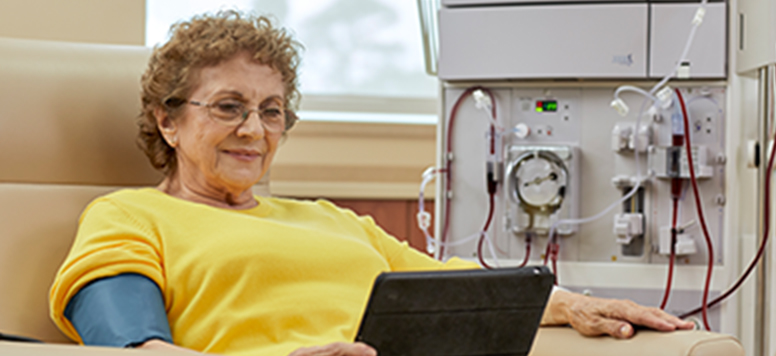






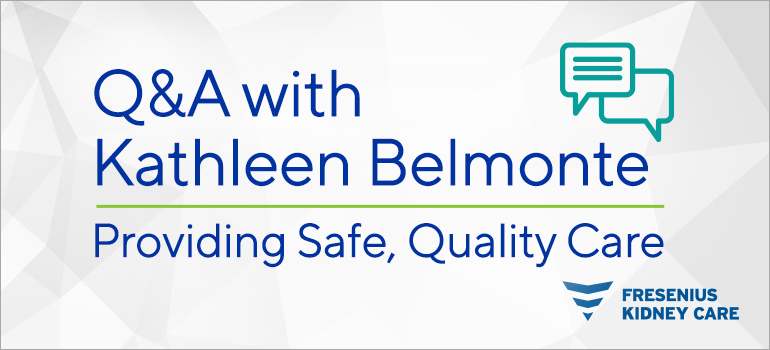

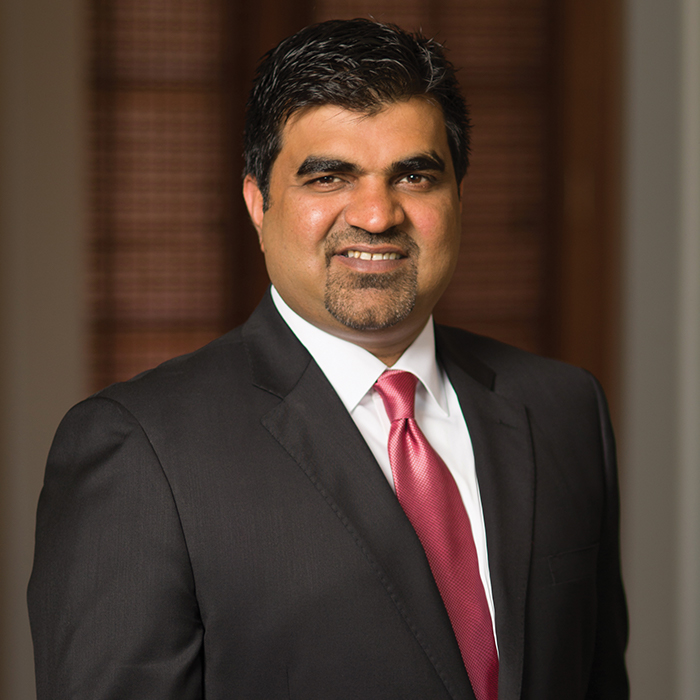

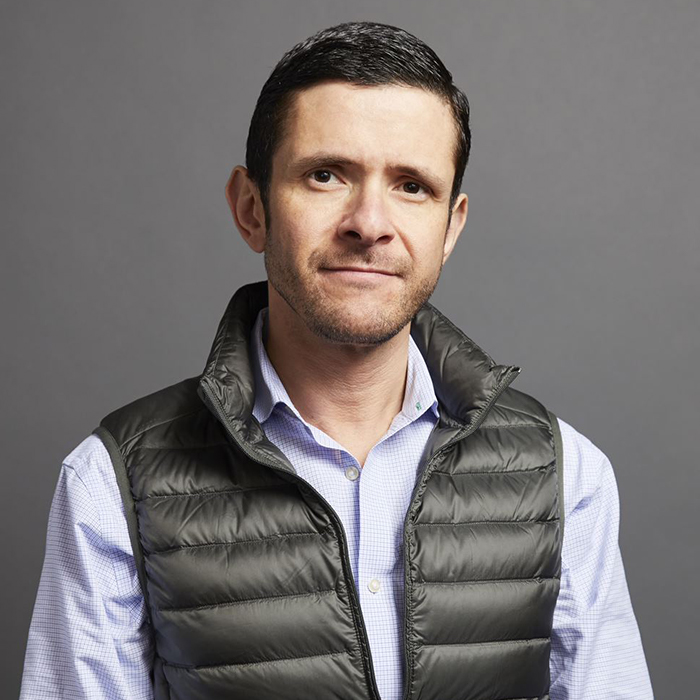
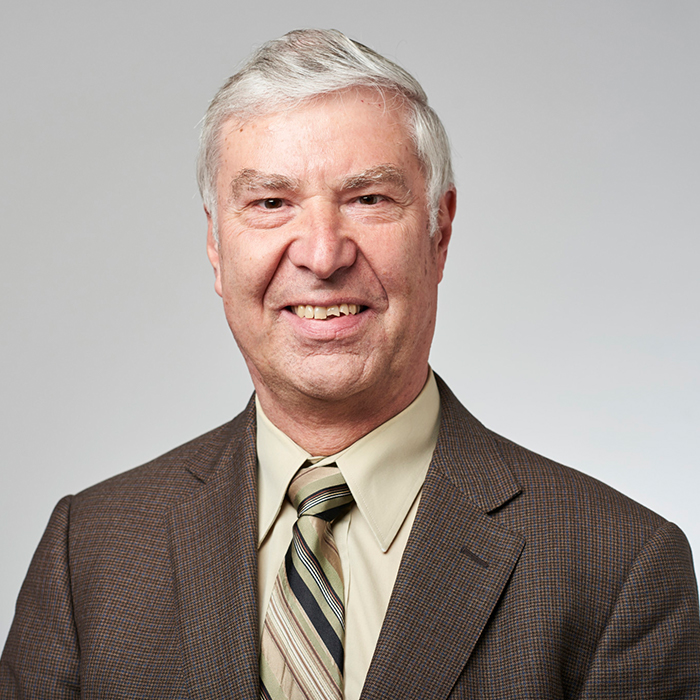
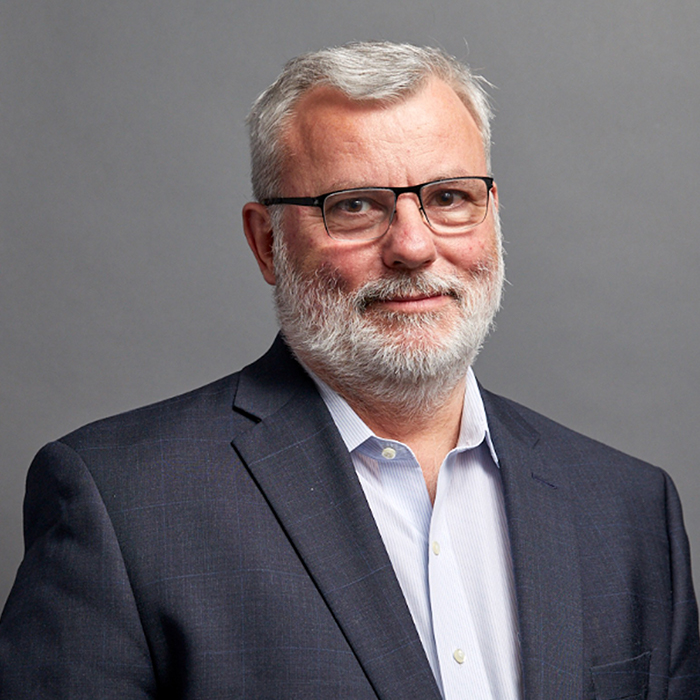

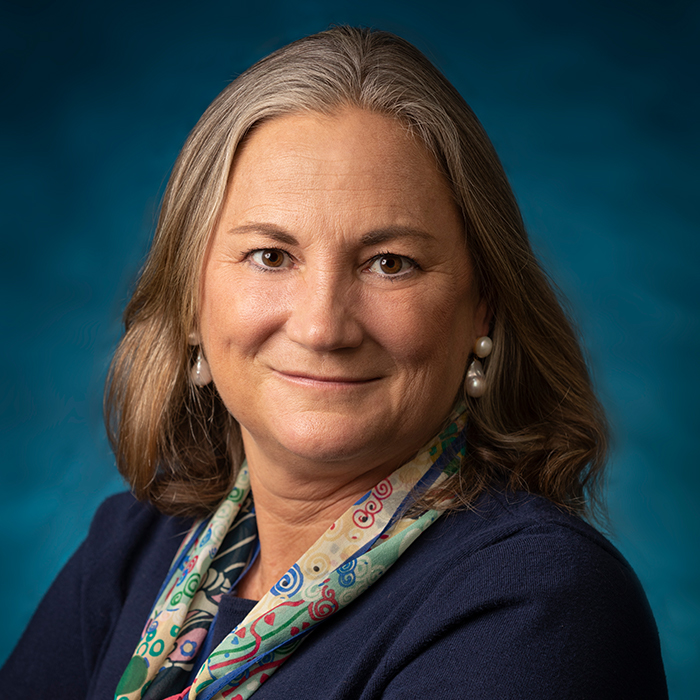
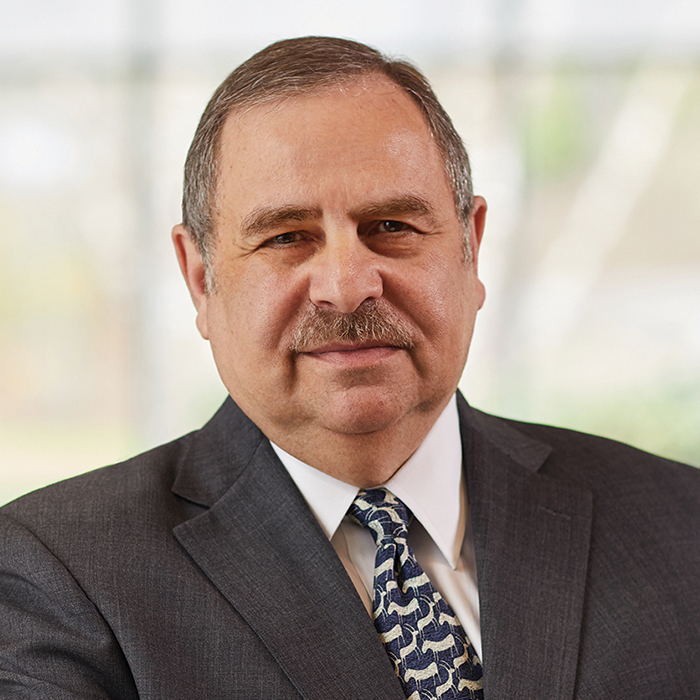



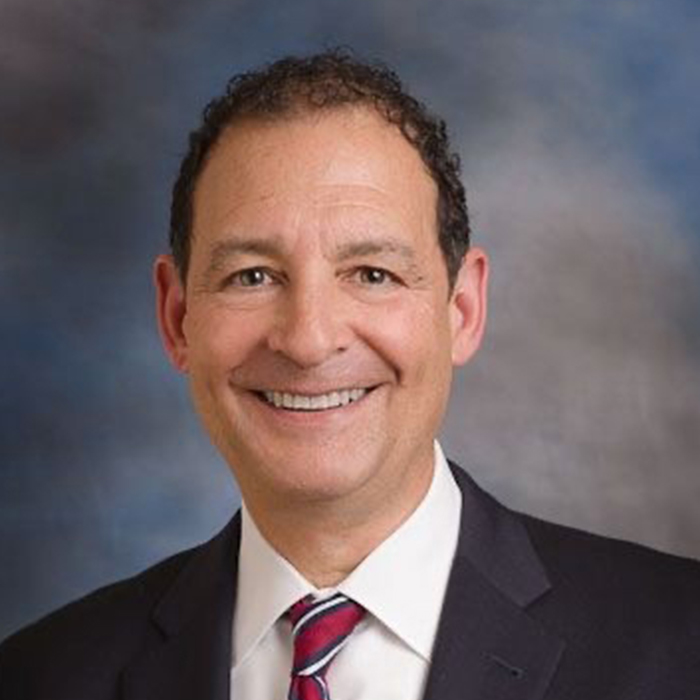




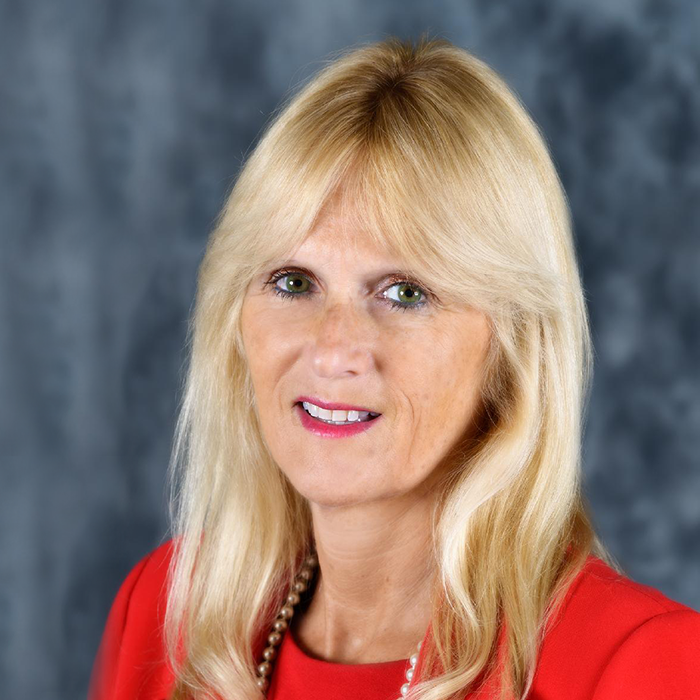










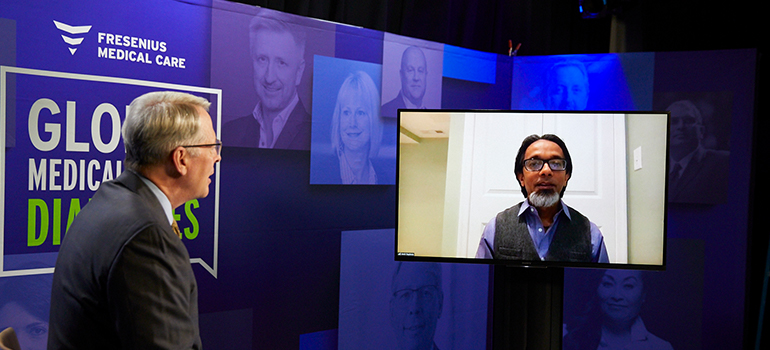

















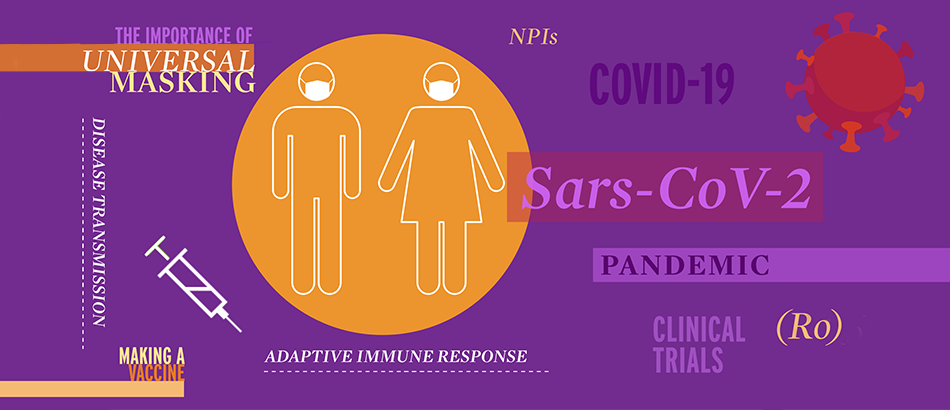
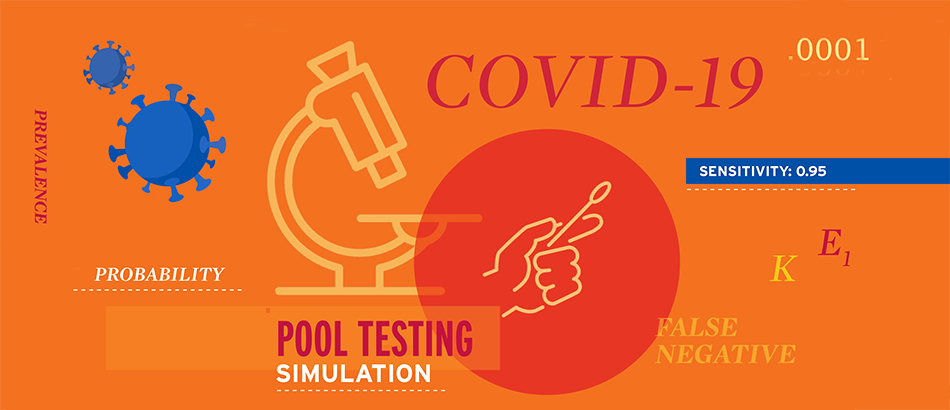
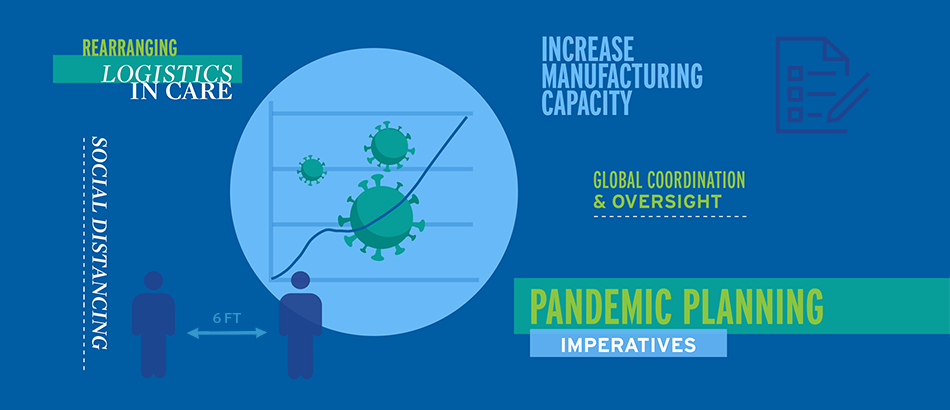
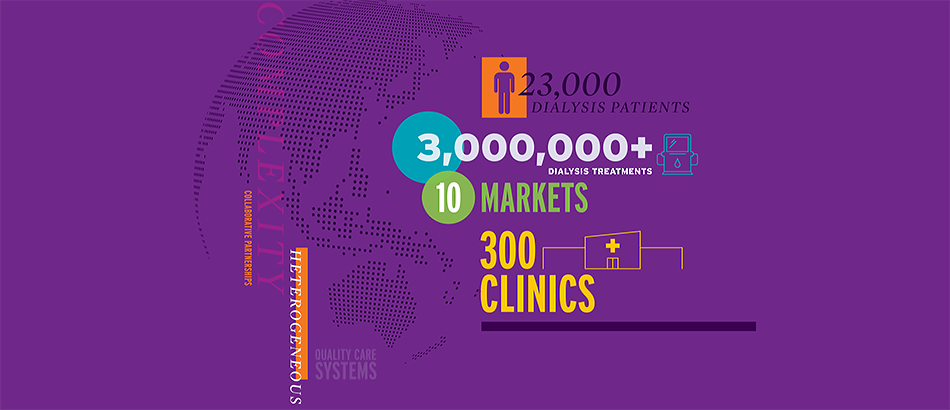
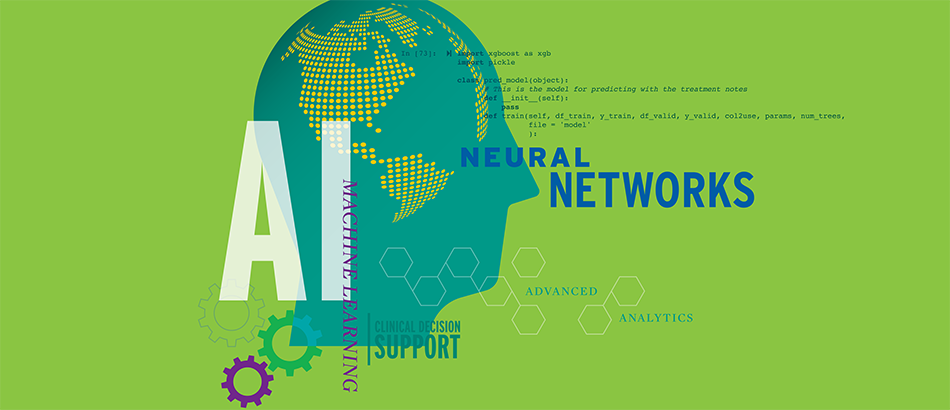
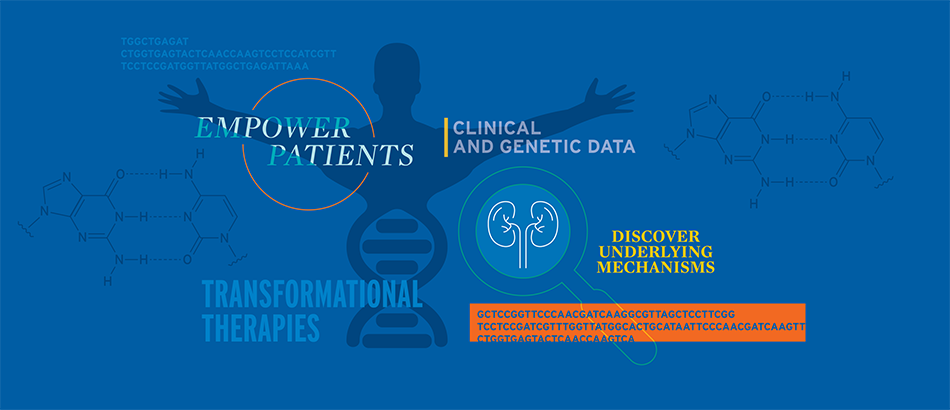
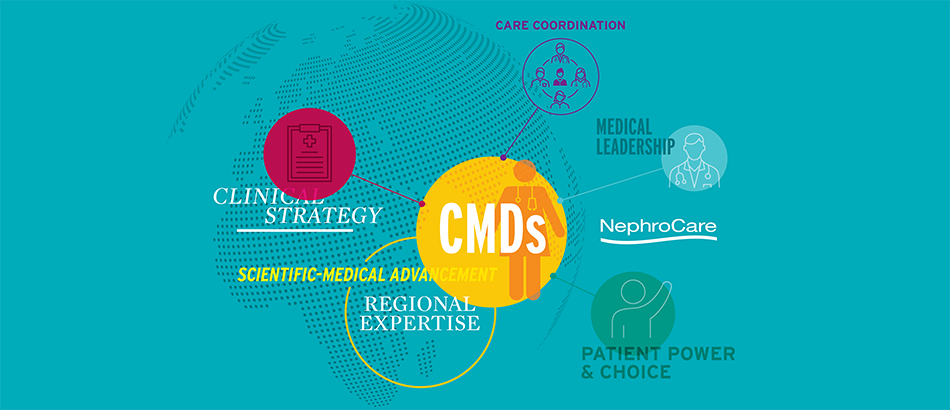
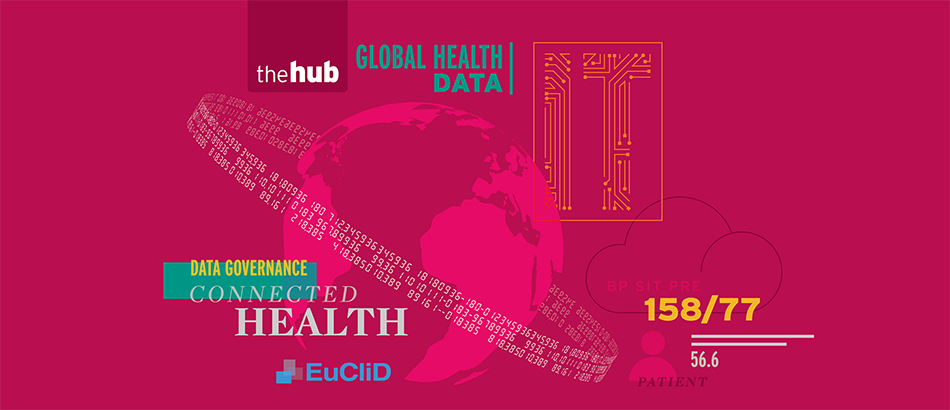
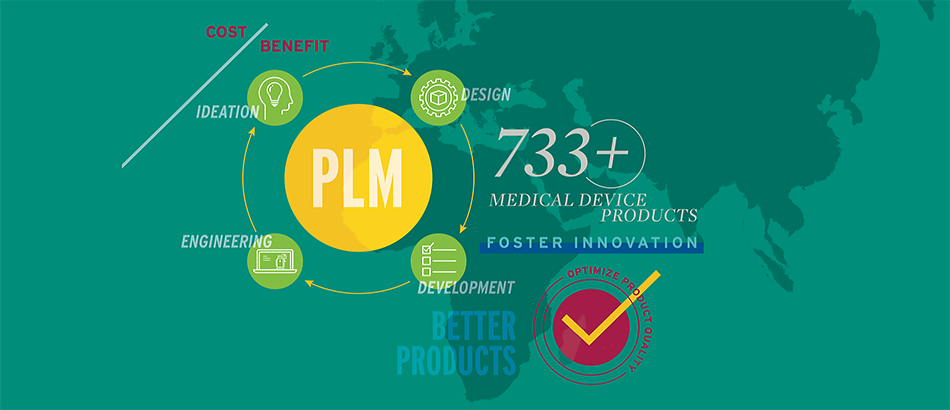
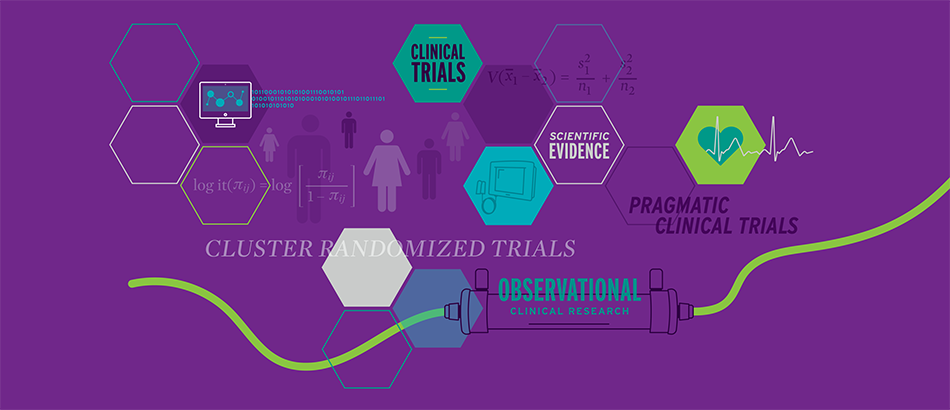
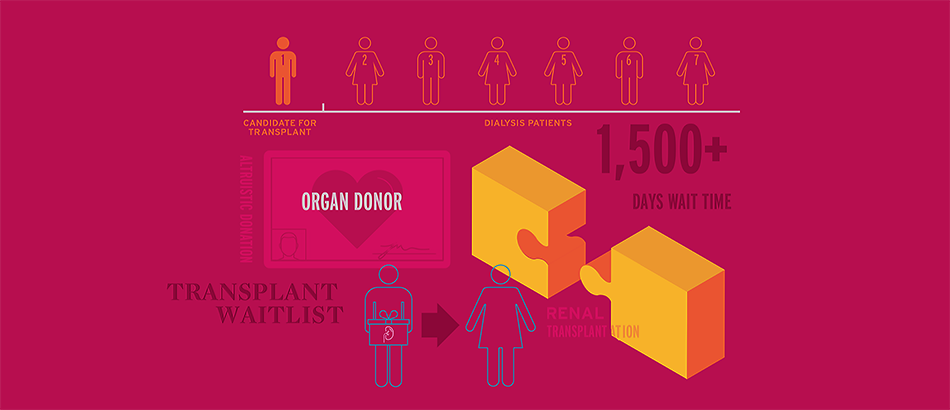

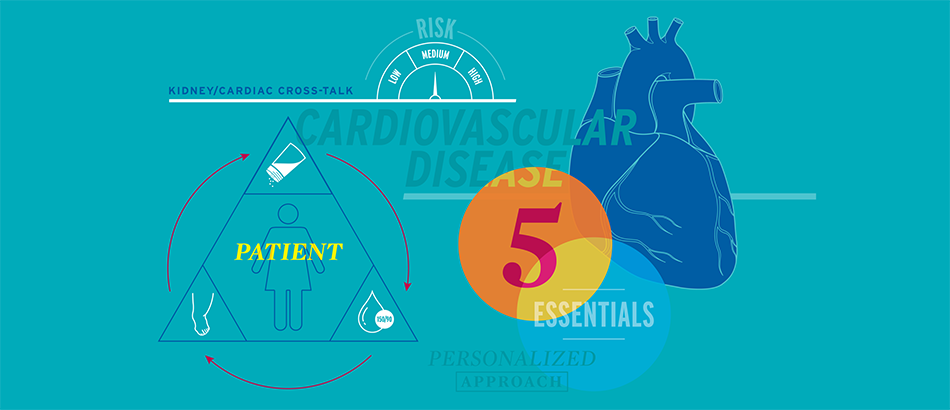


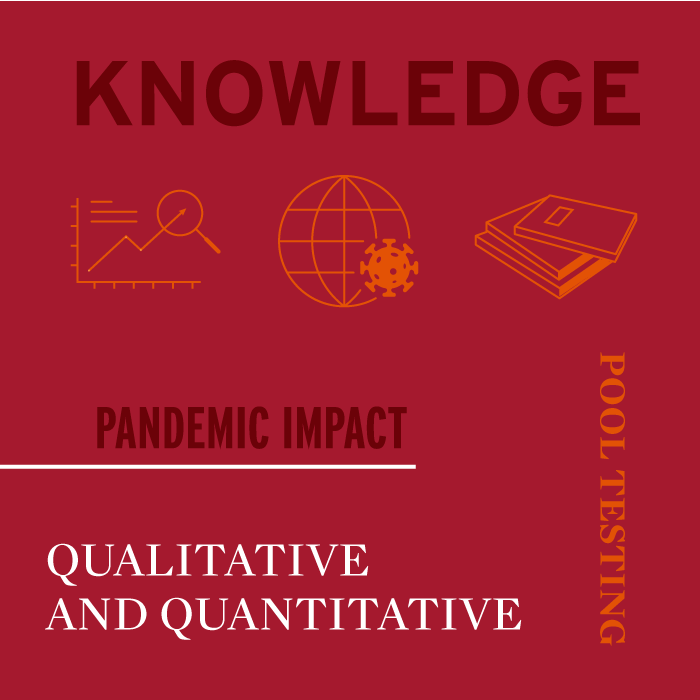
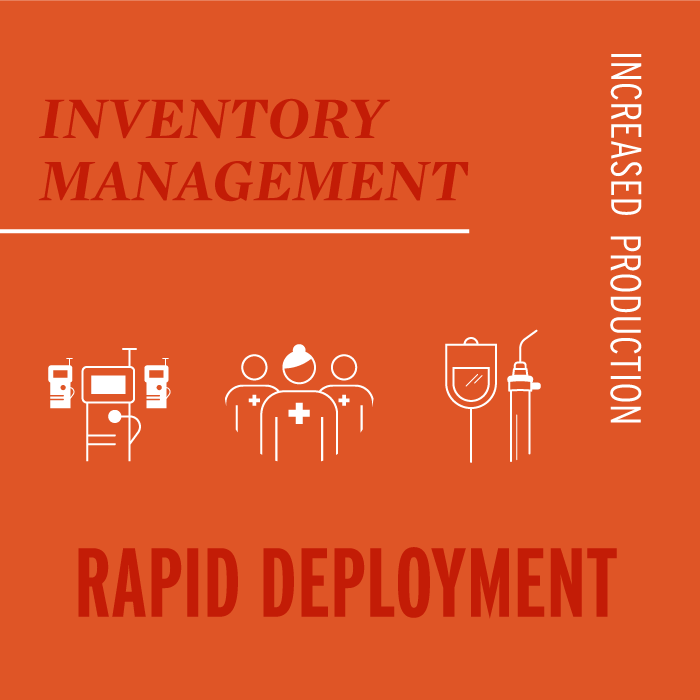
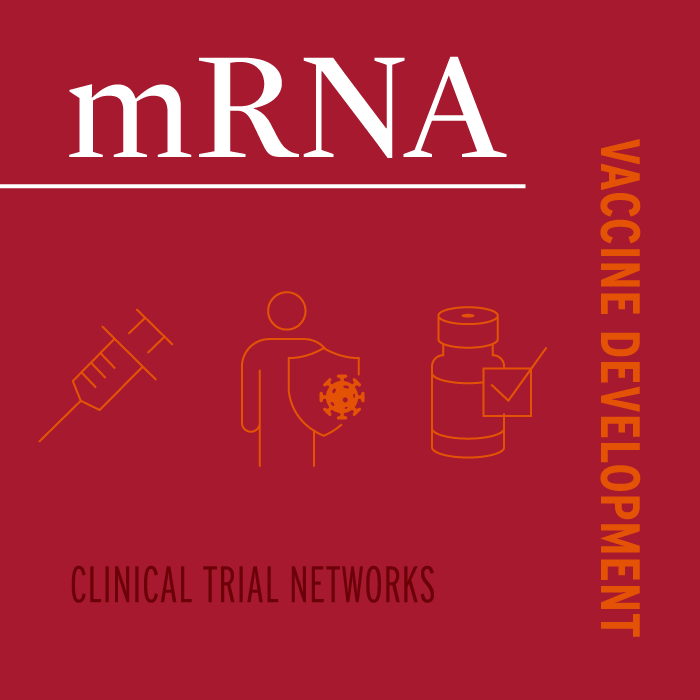
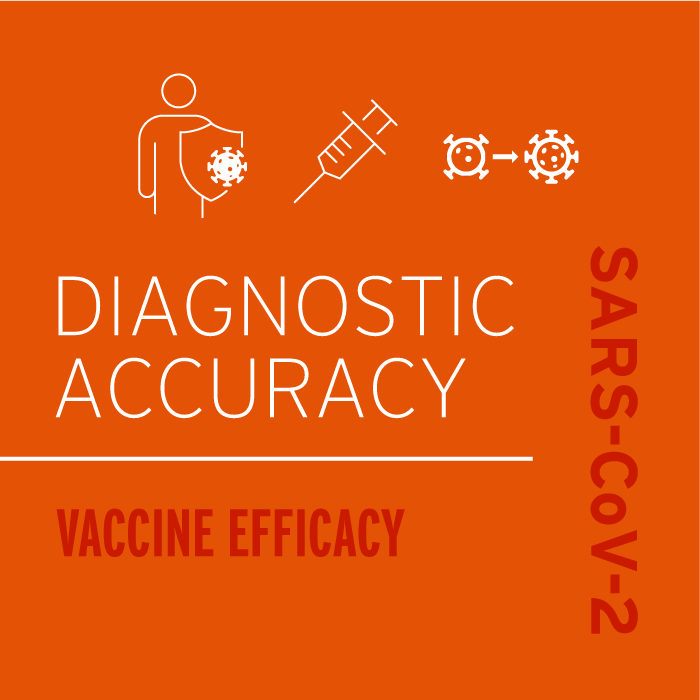
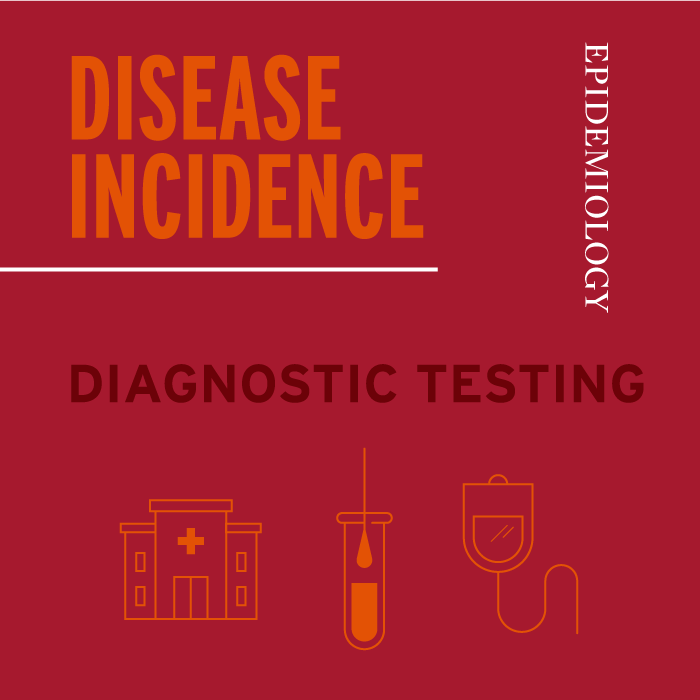
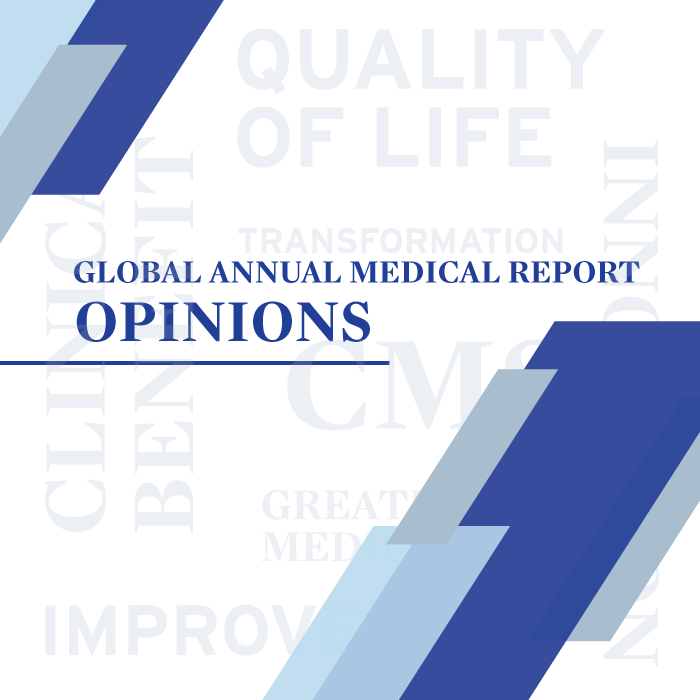
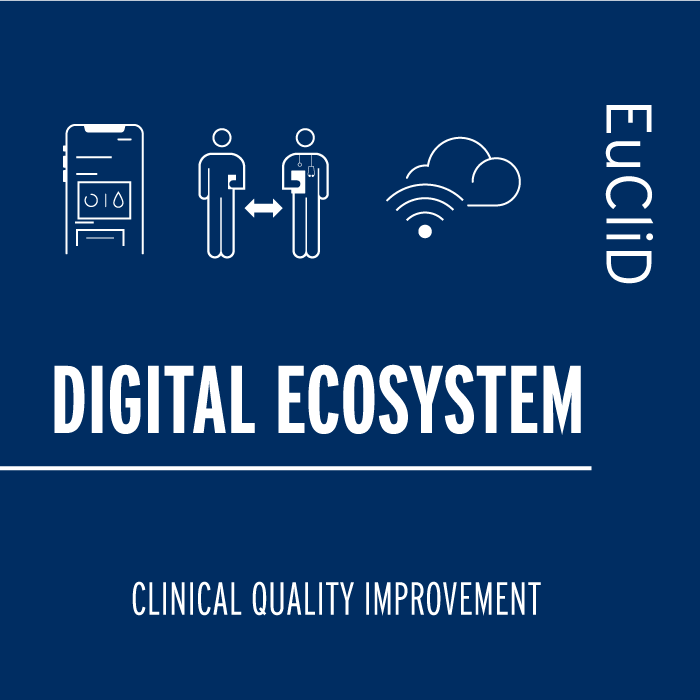
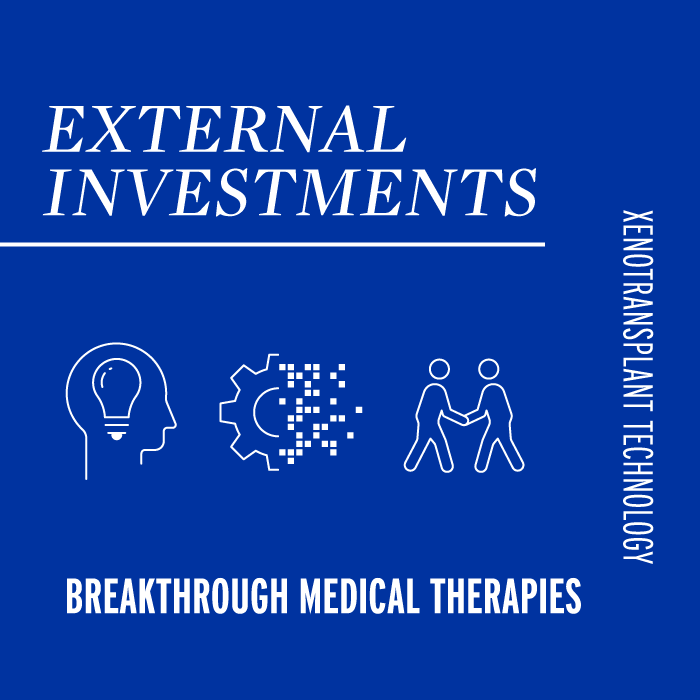
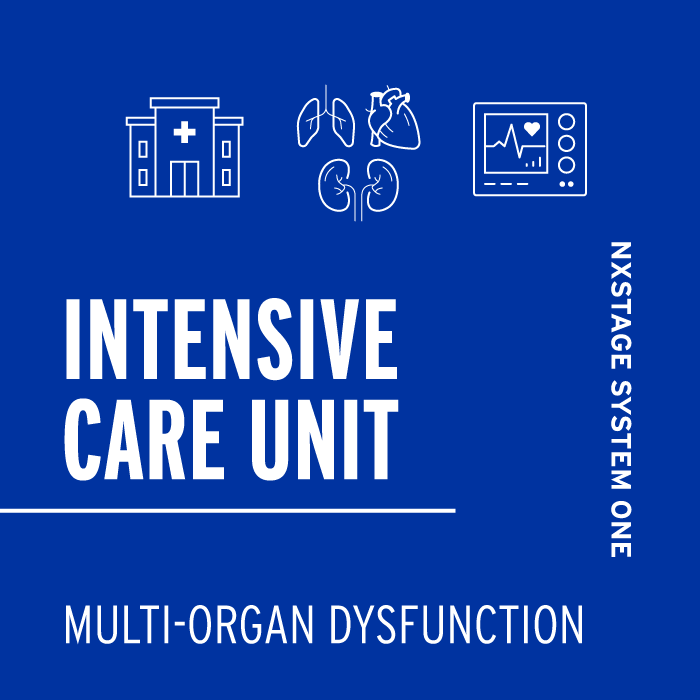
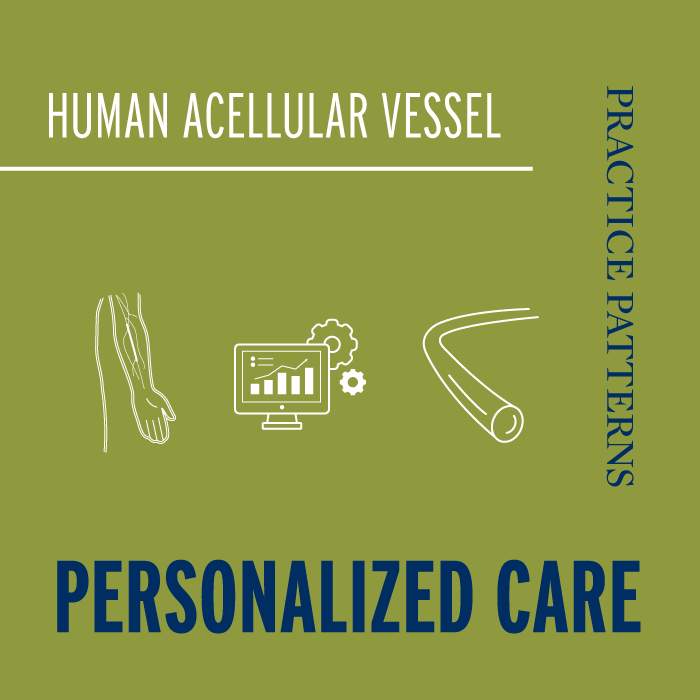
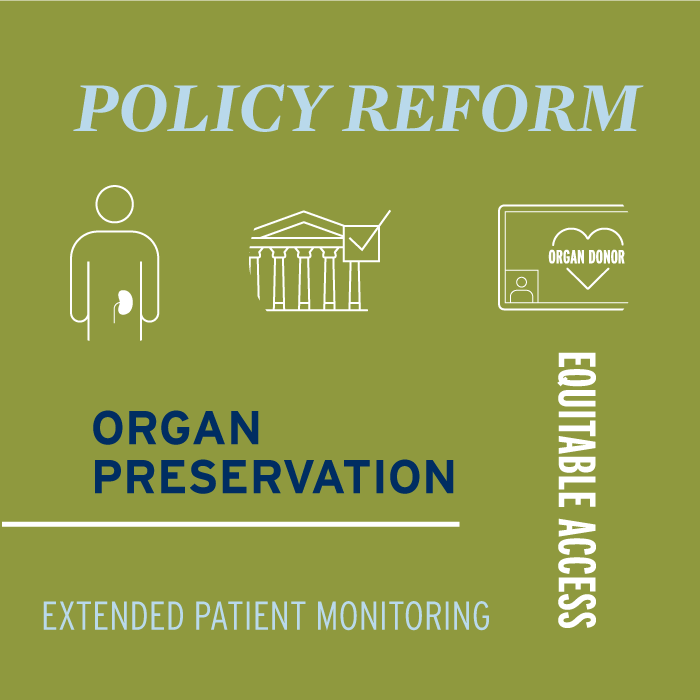
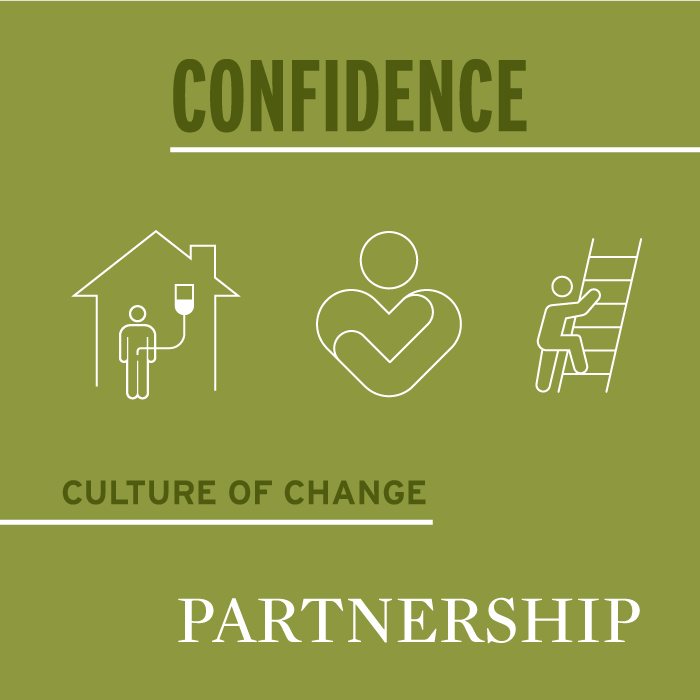
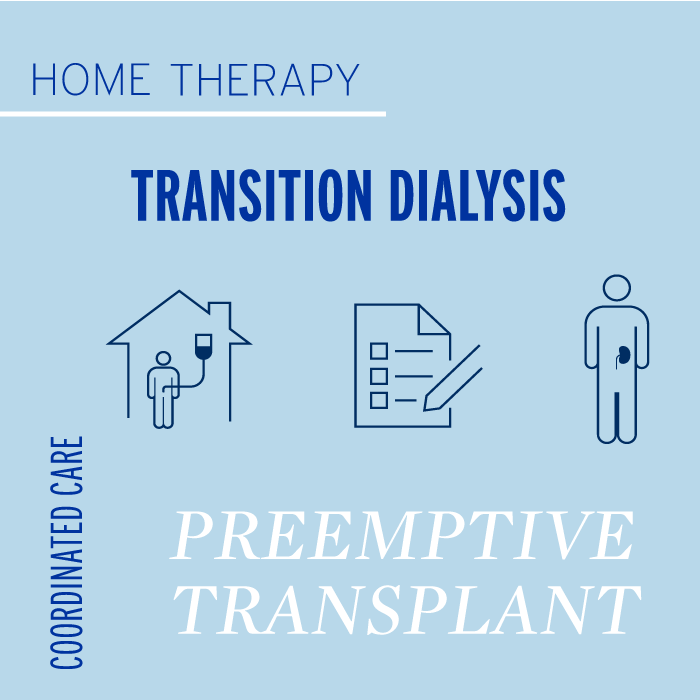
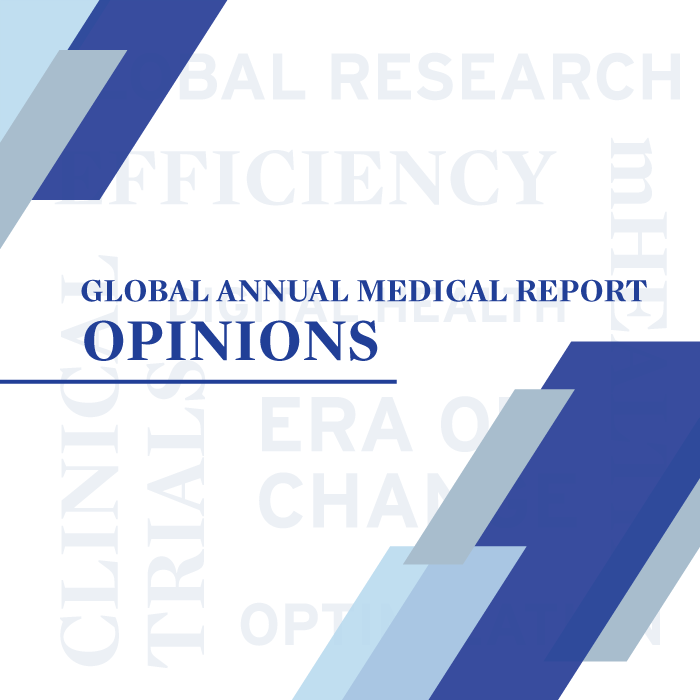
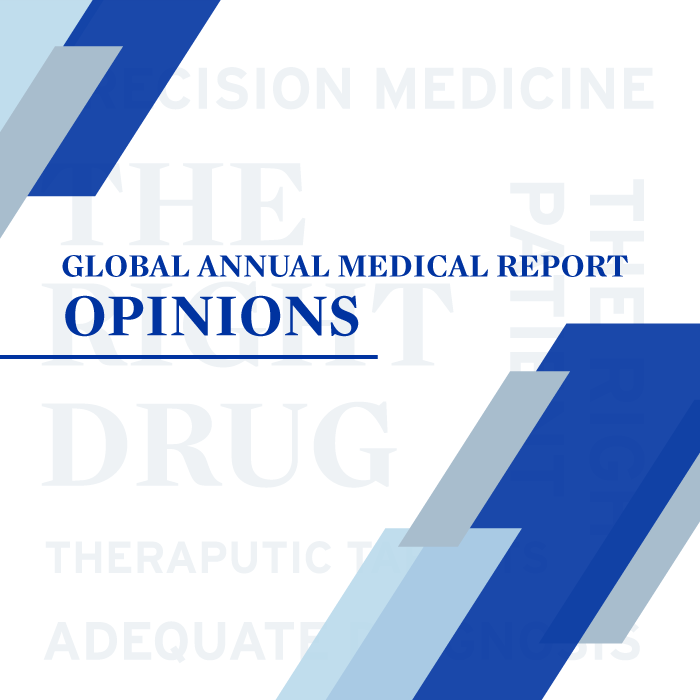
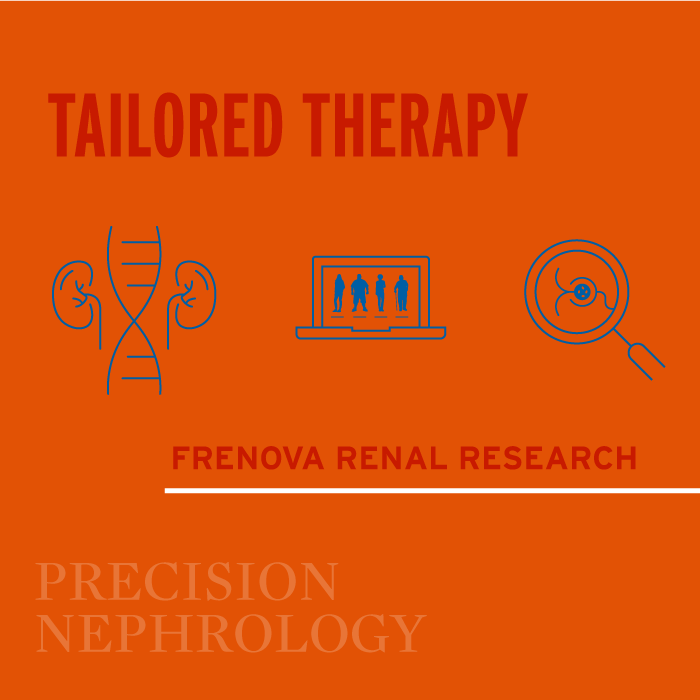
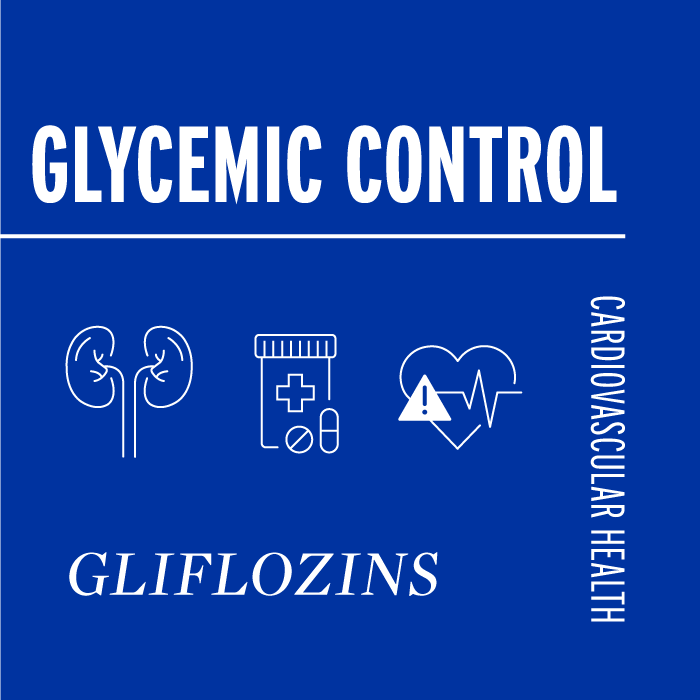
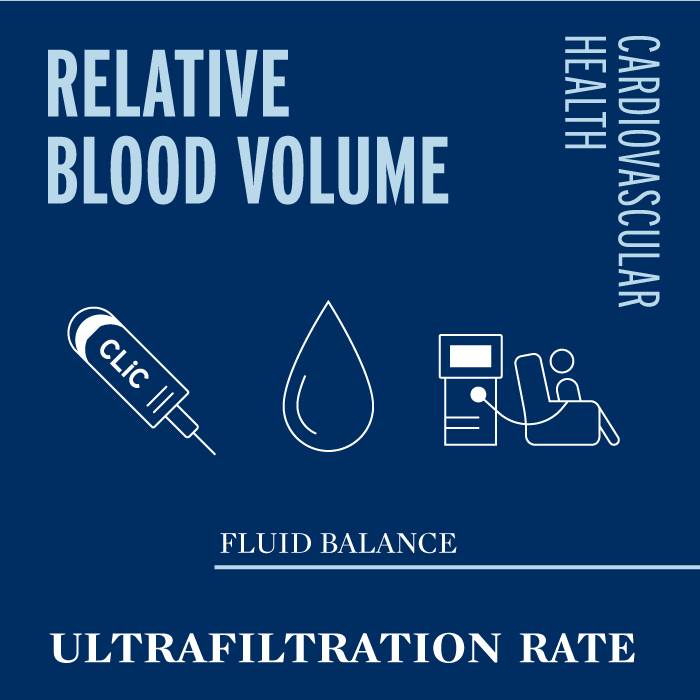
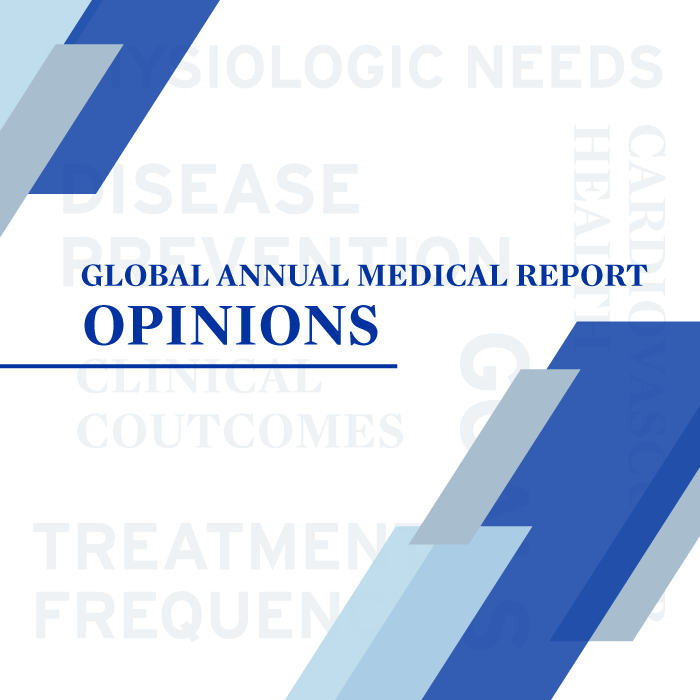
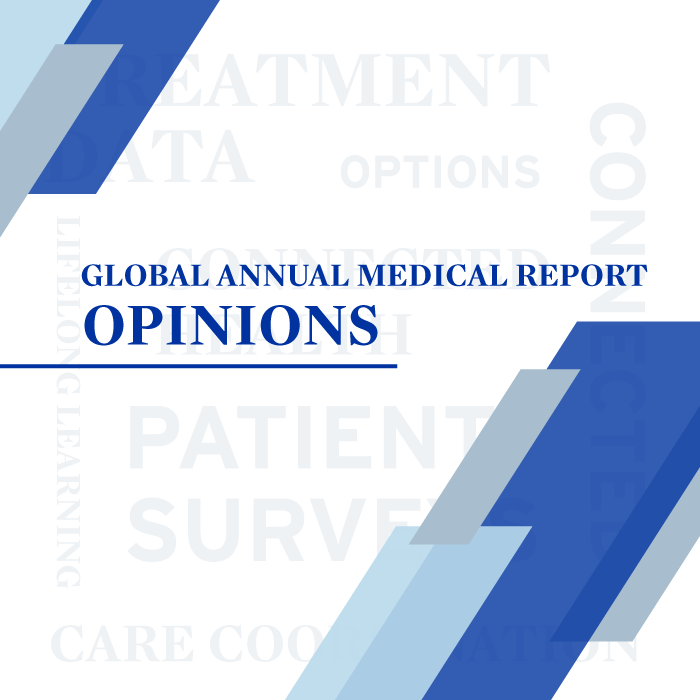

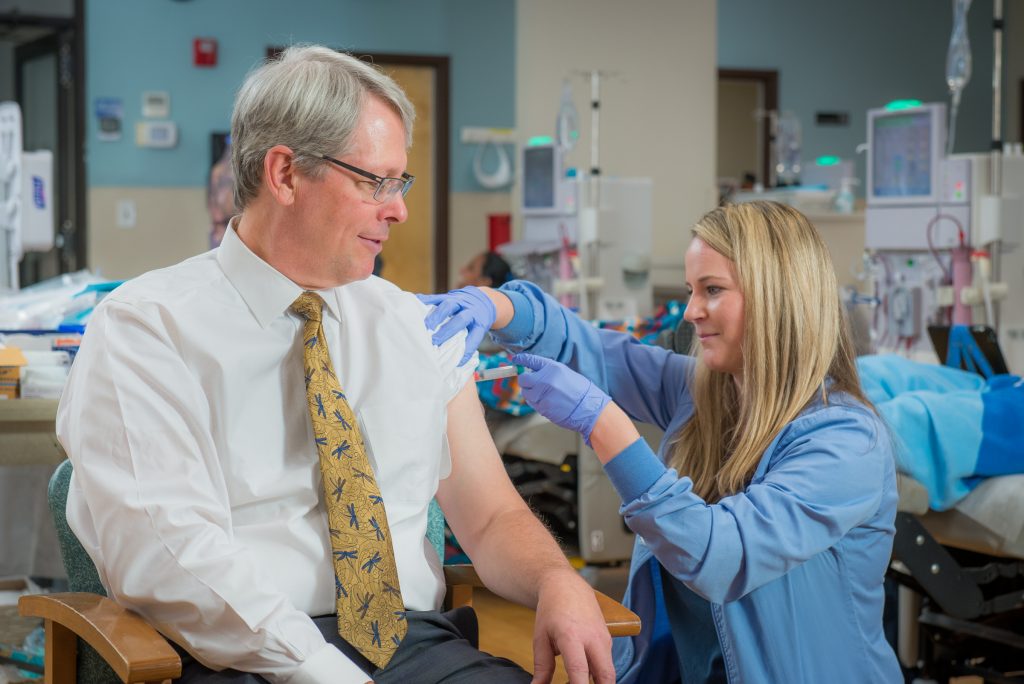


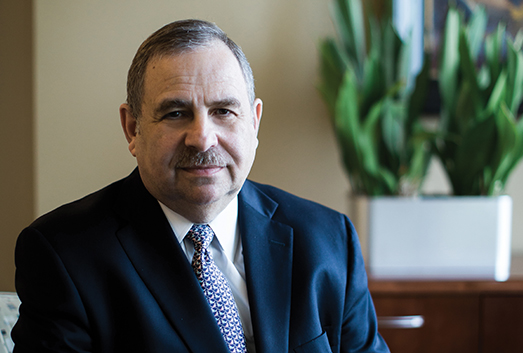


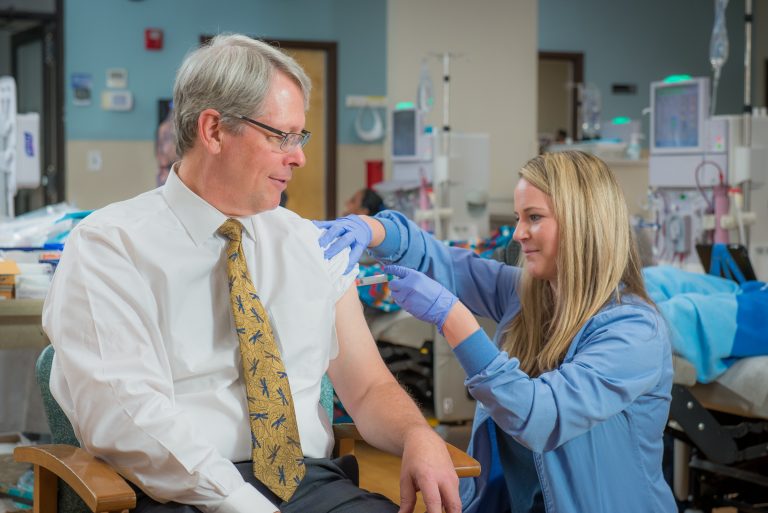


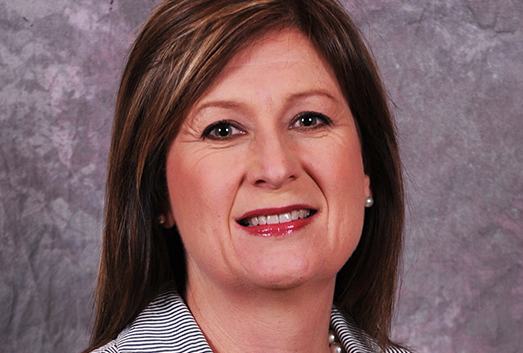
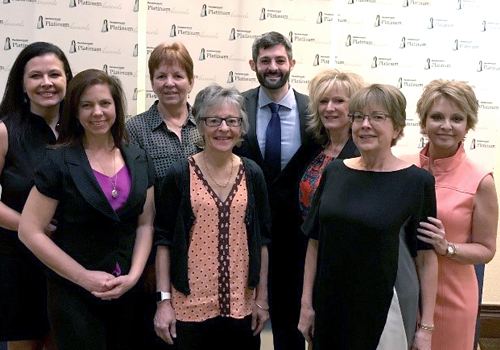

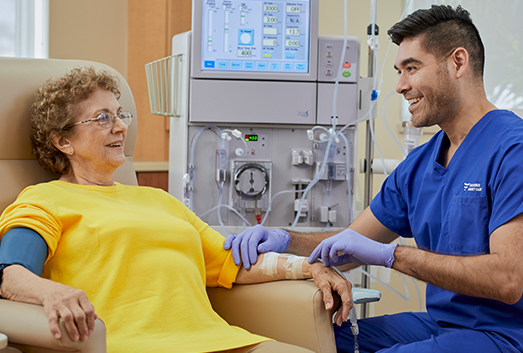



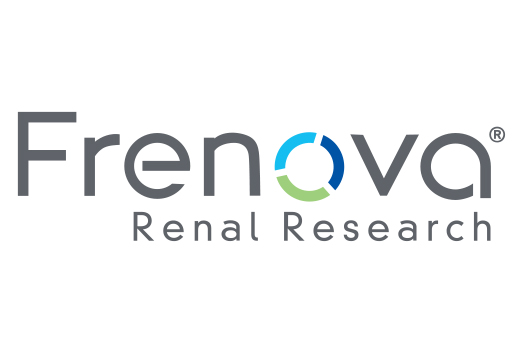

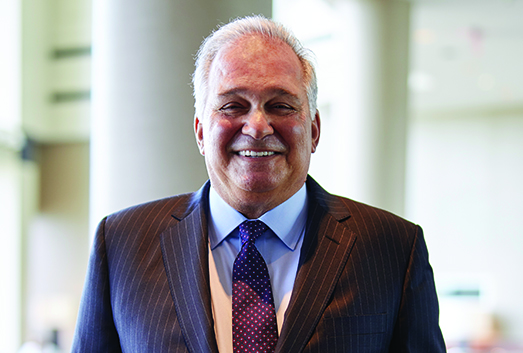

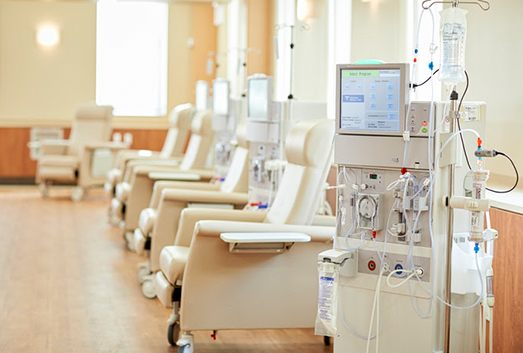

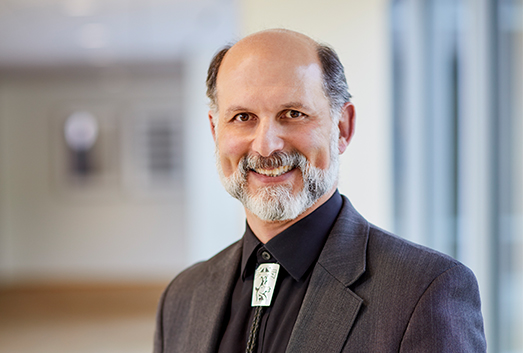
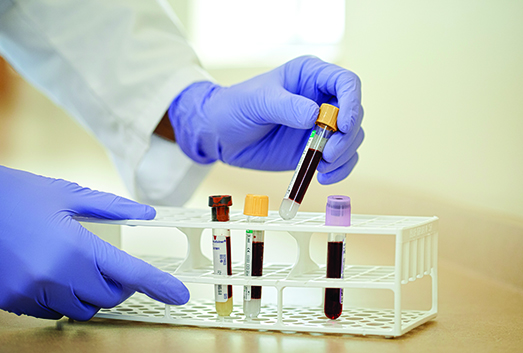
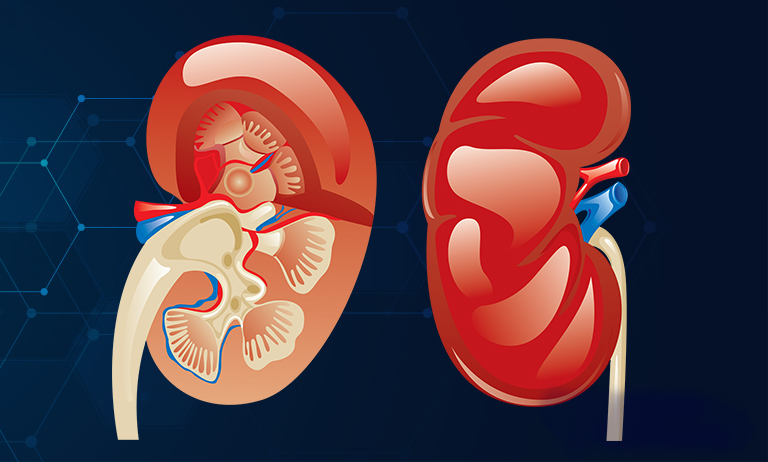


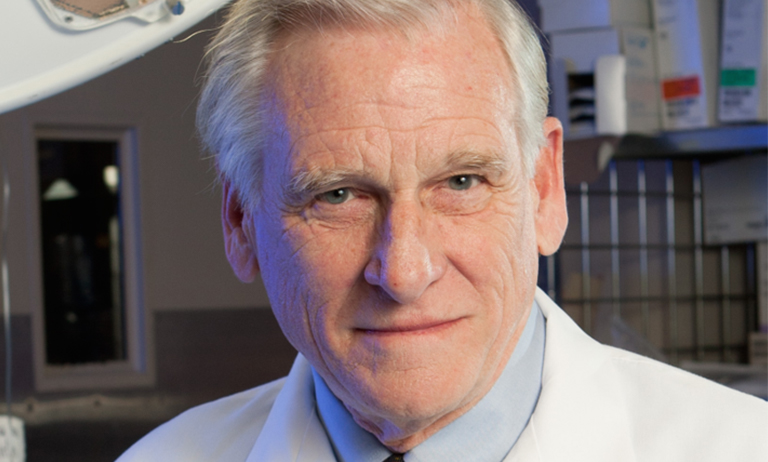
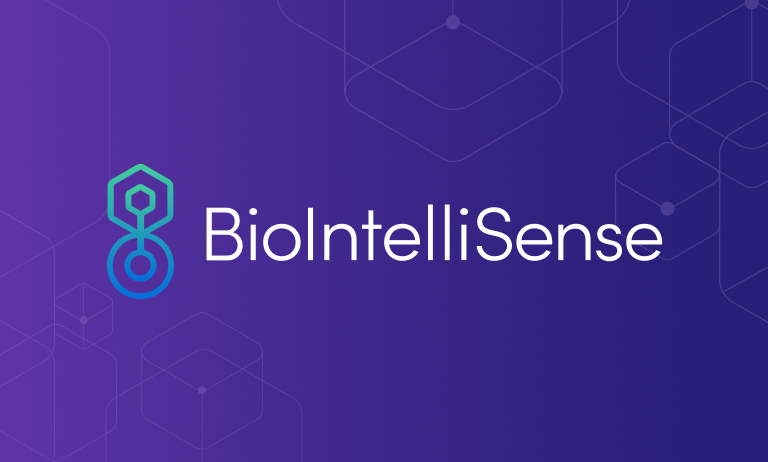
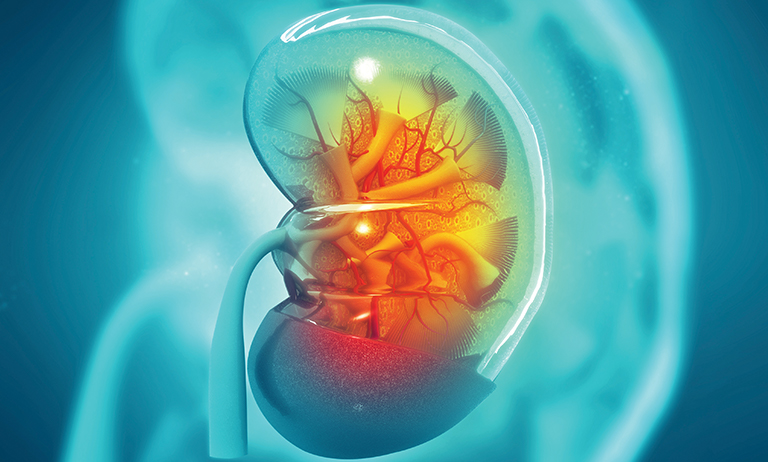


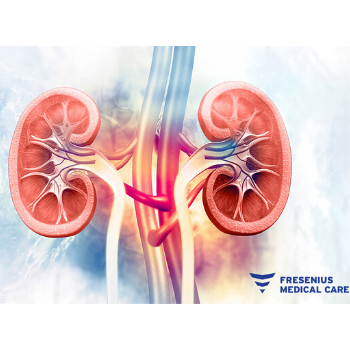



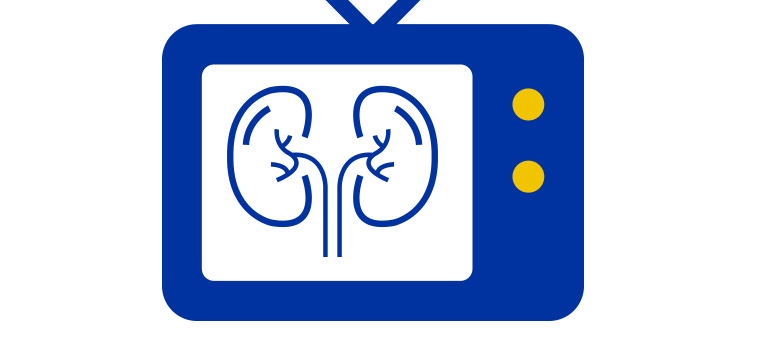

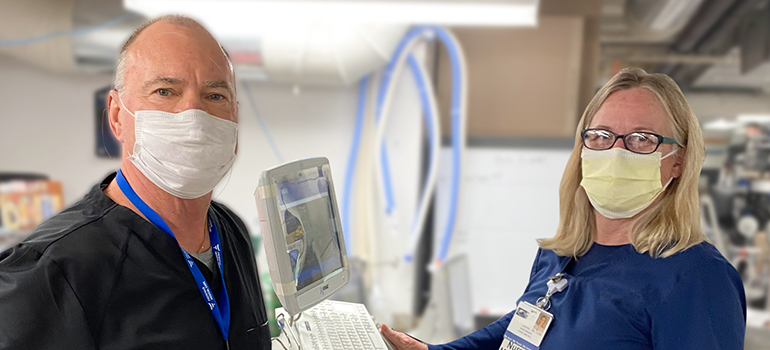

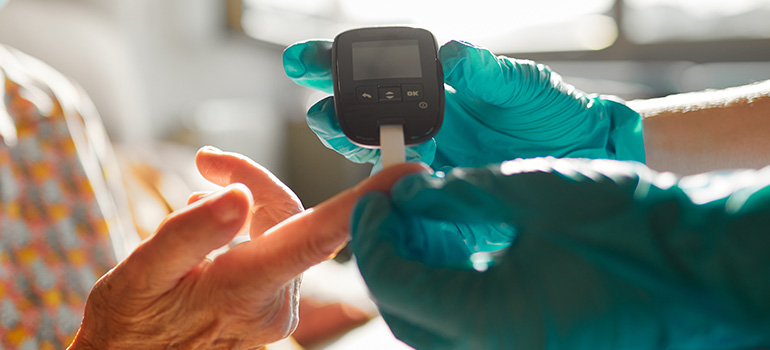

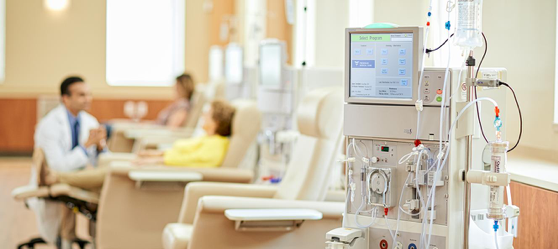
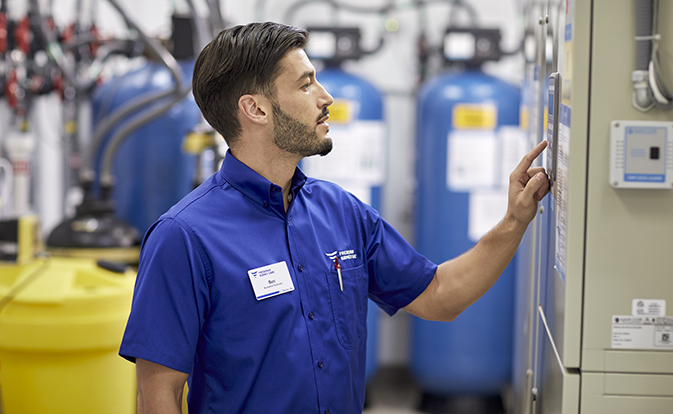
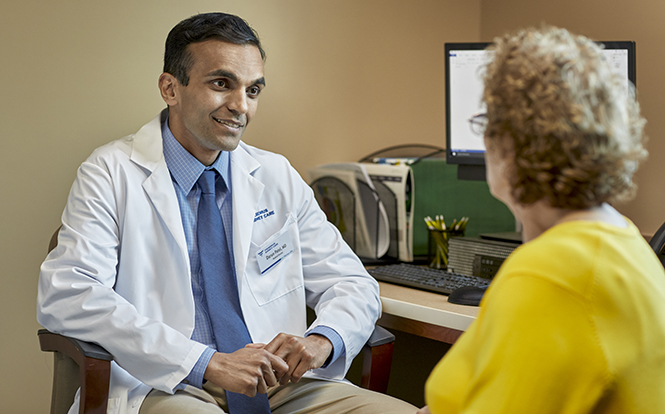
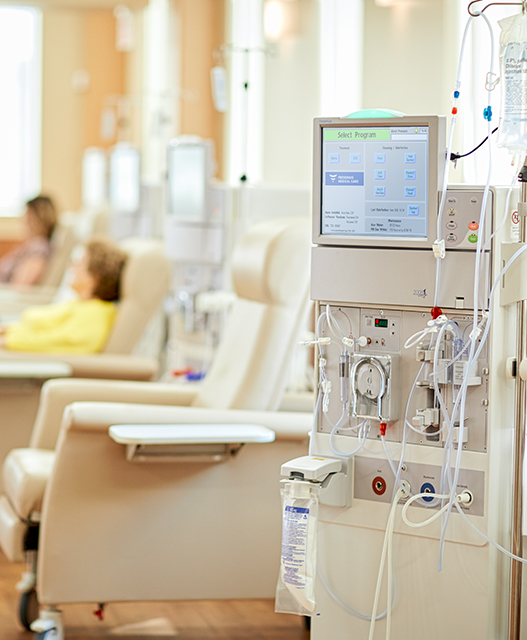



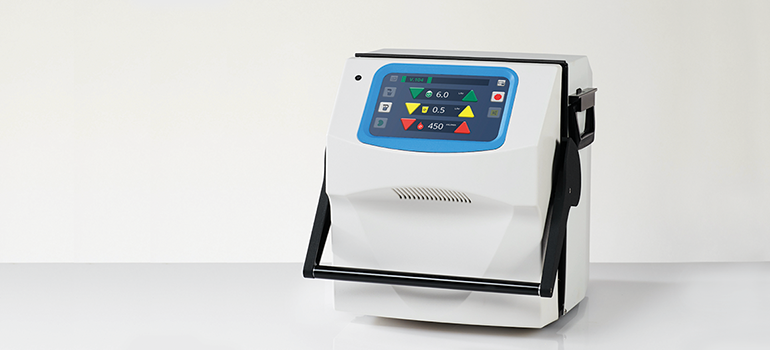

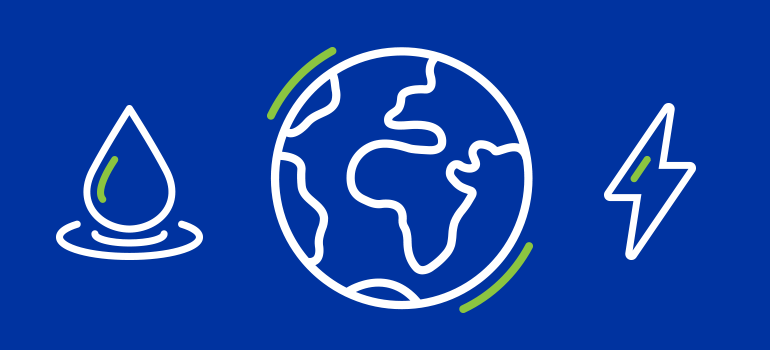
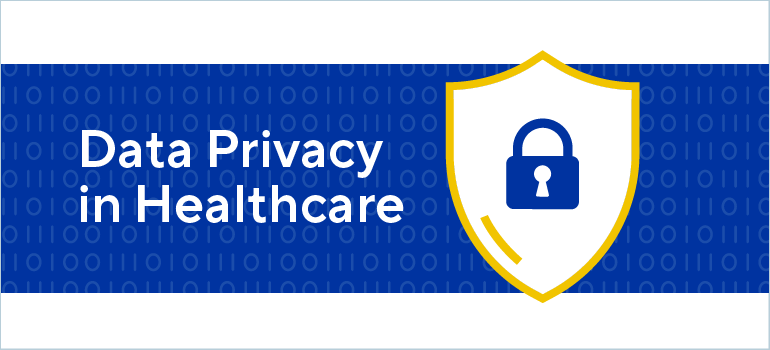


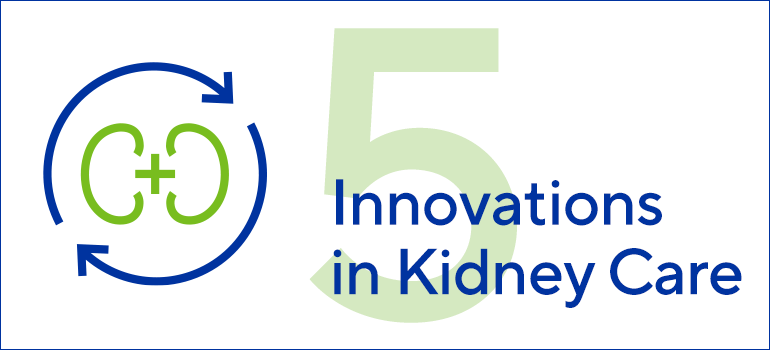





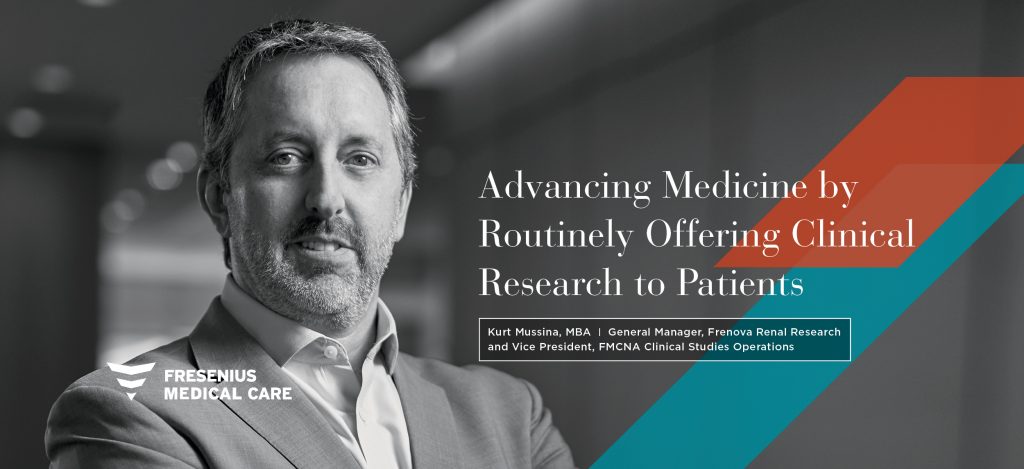
.jpg)



